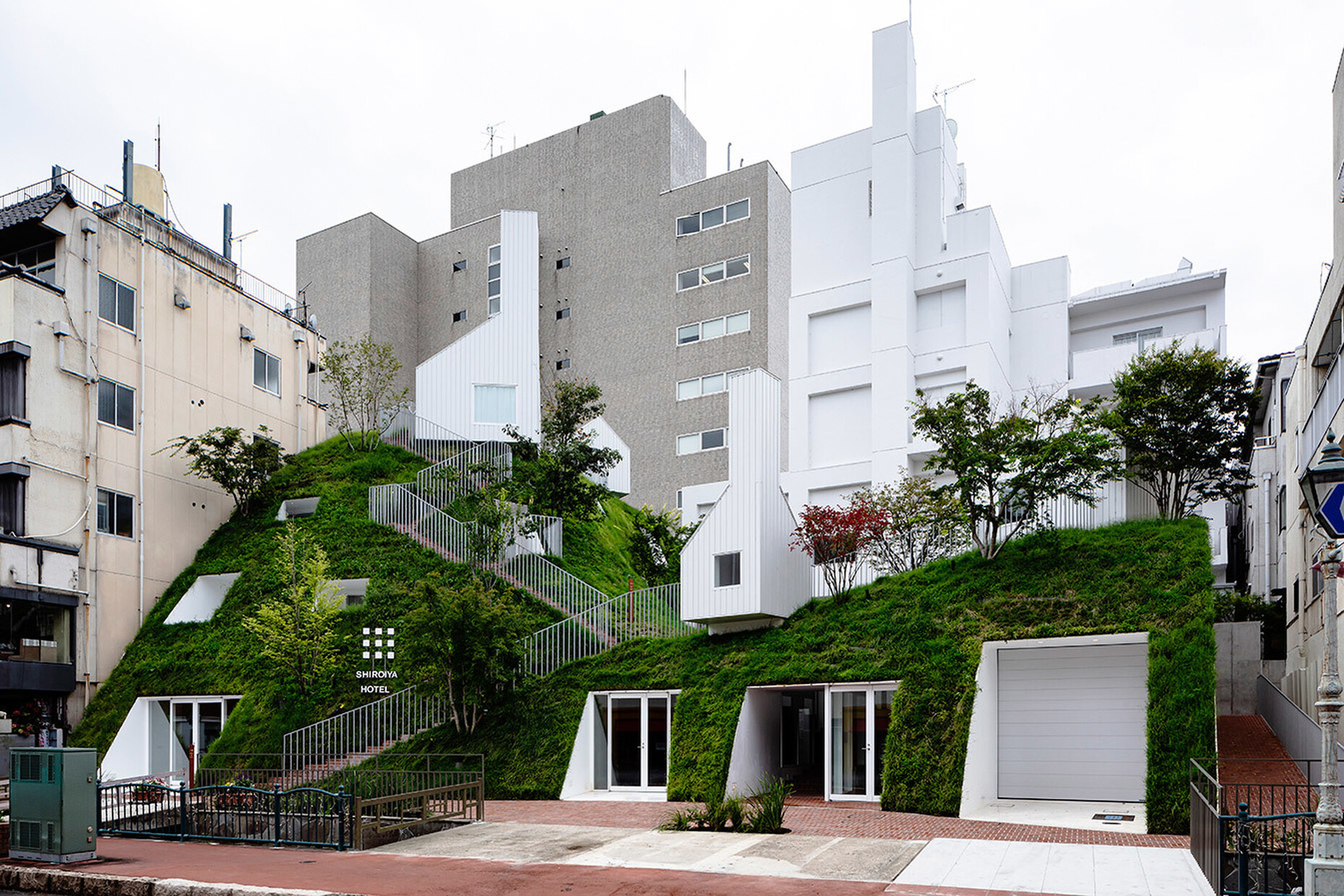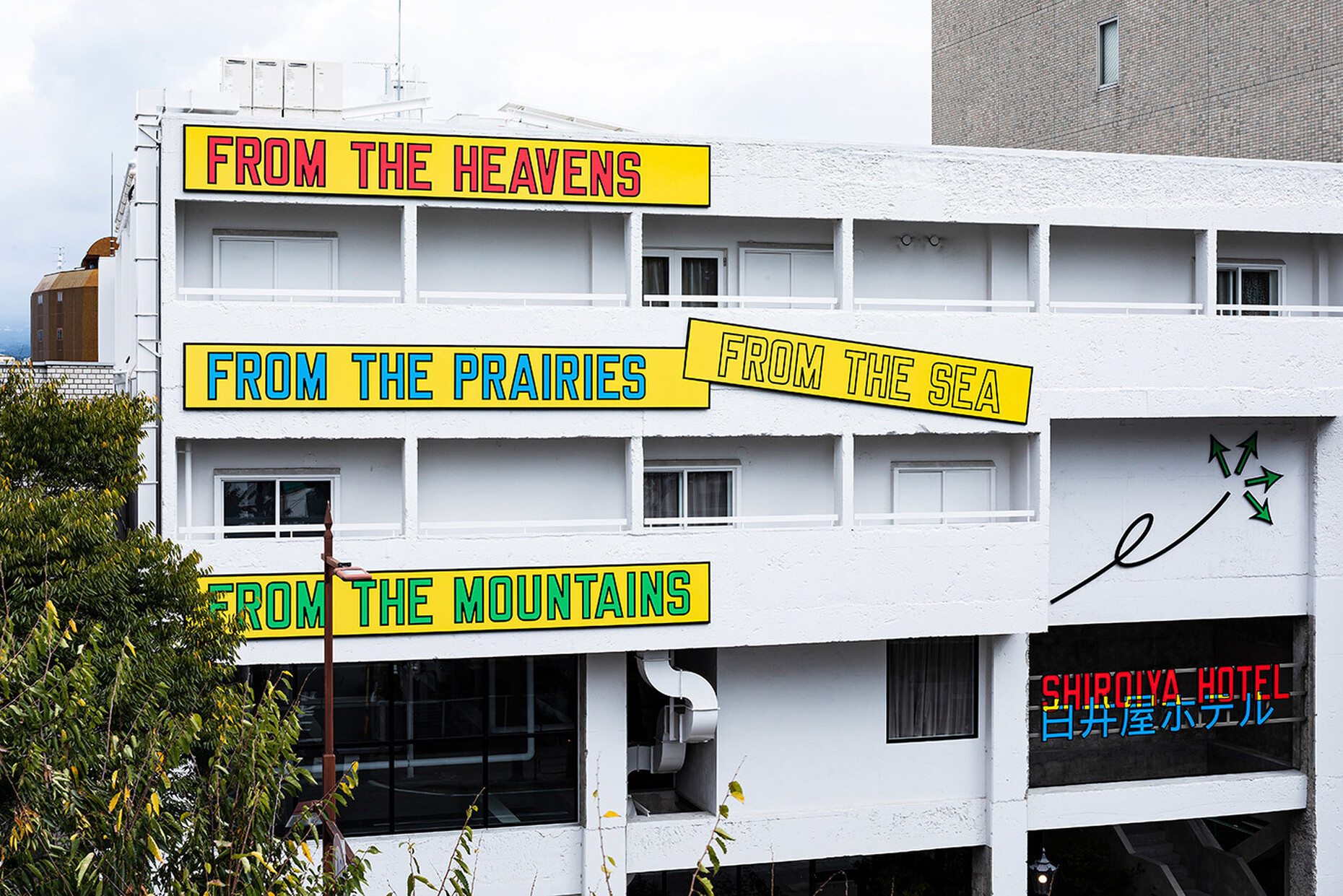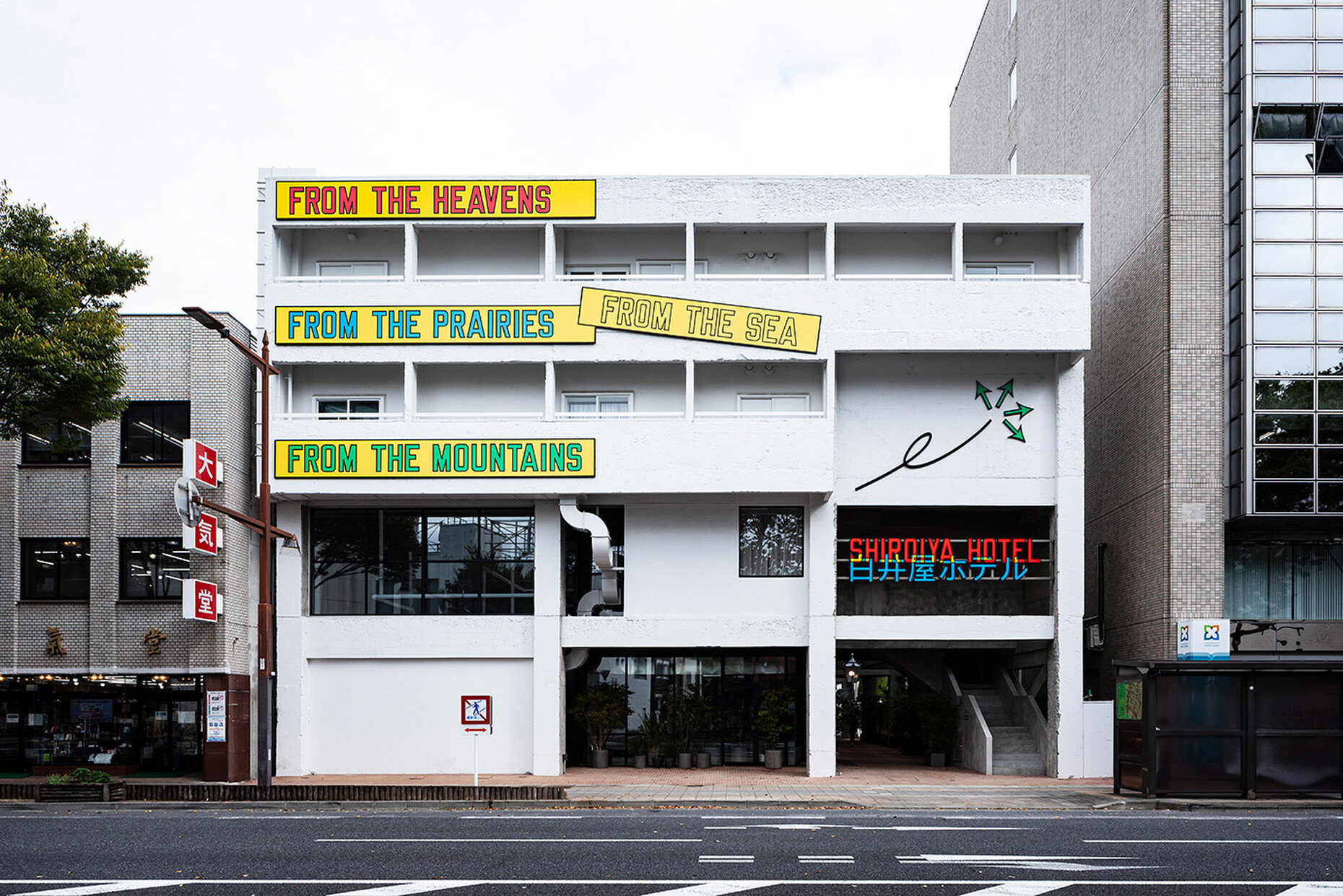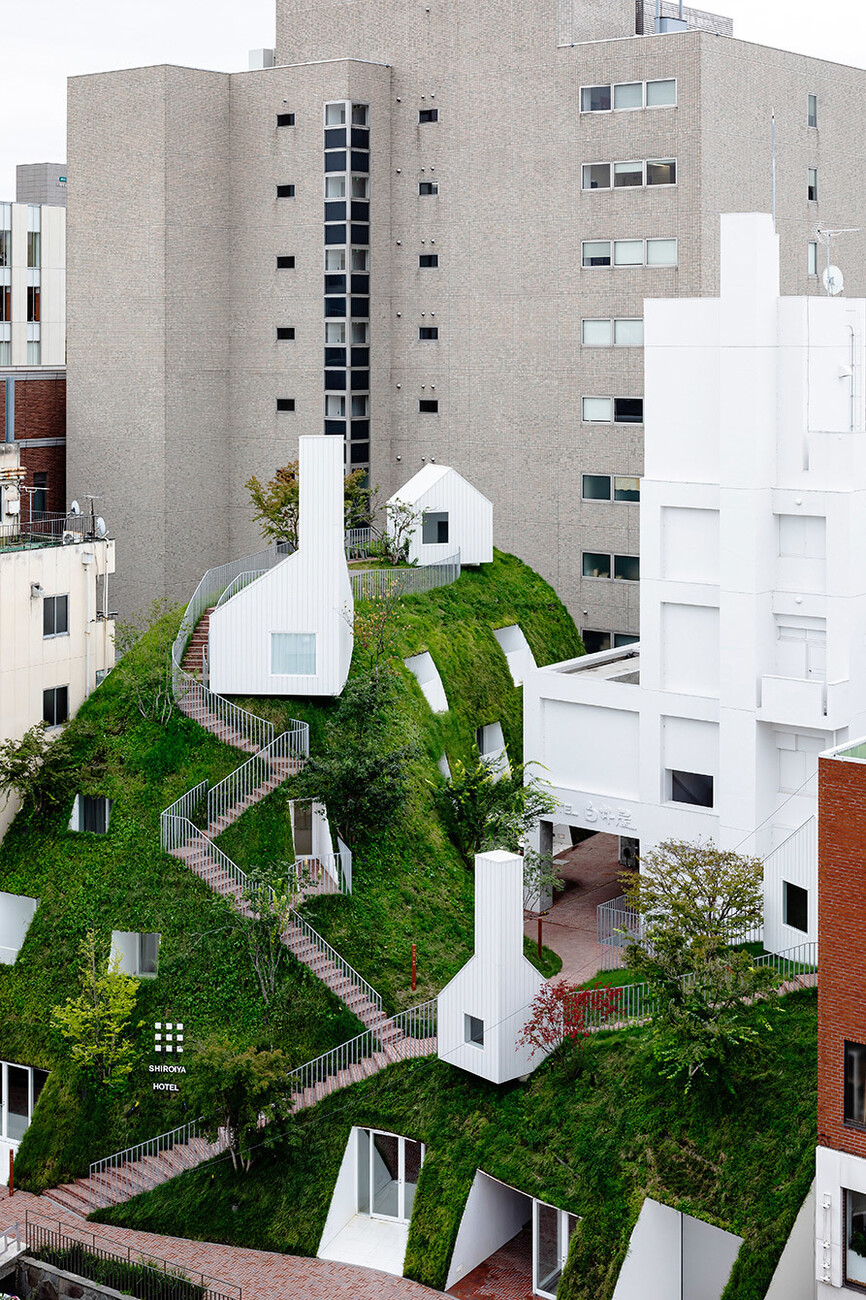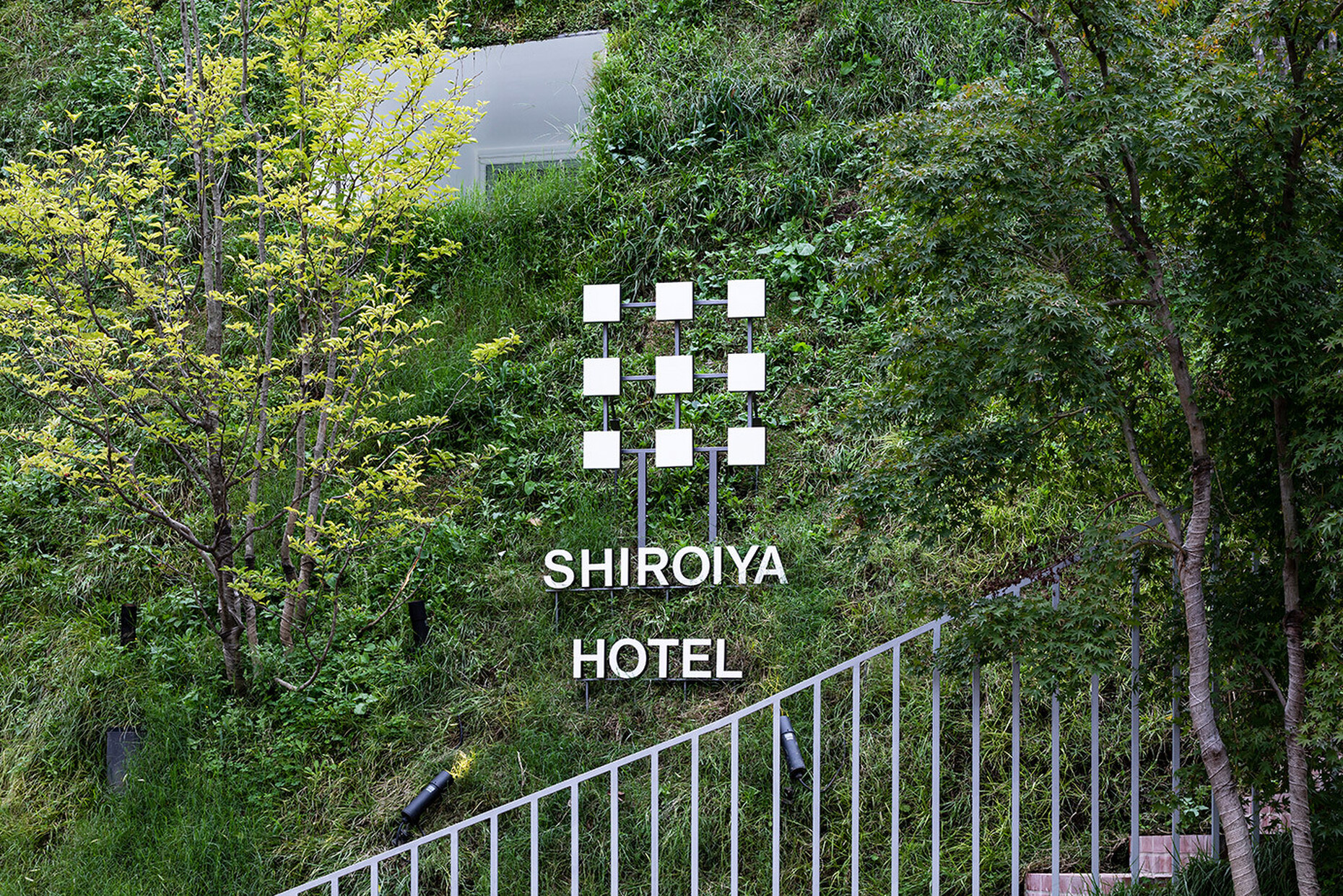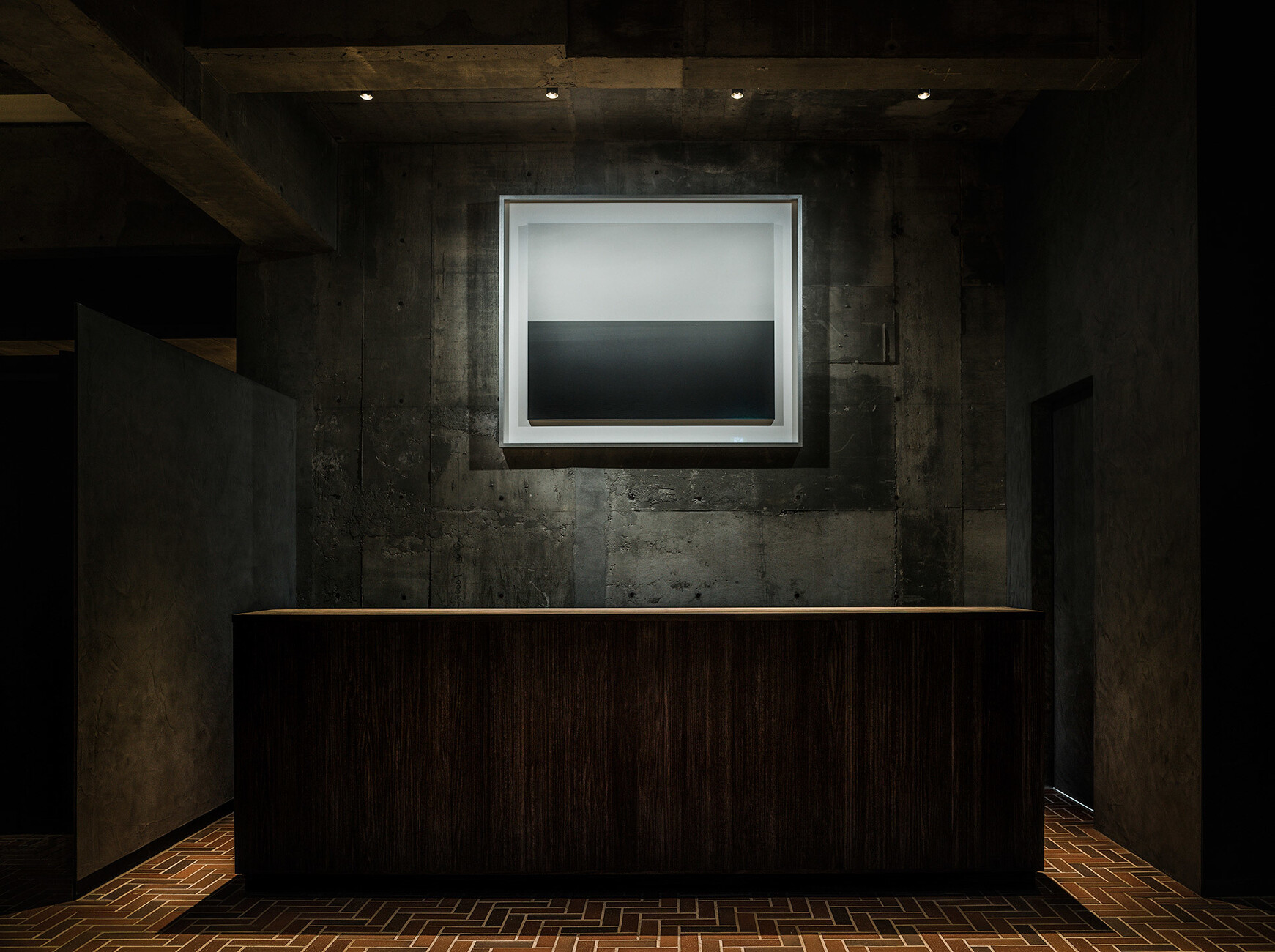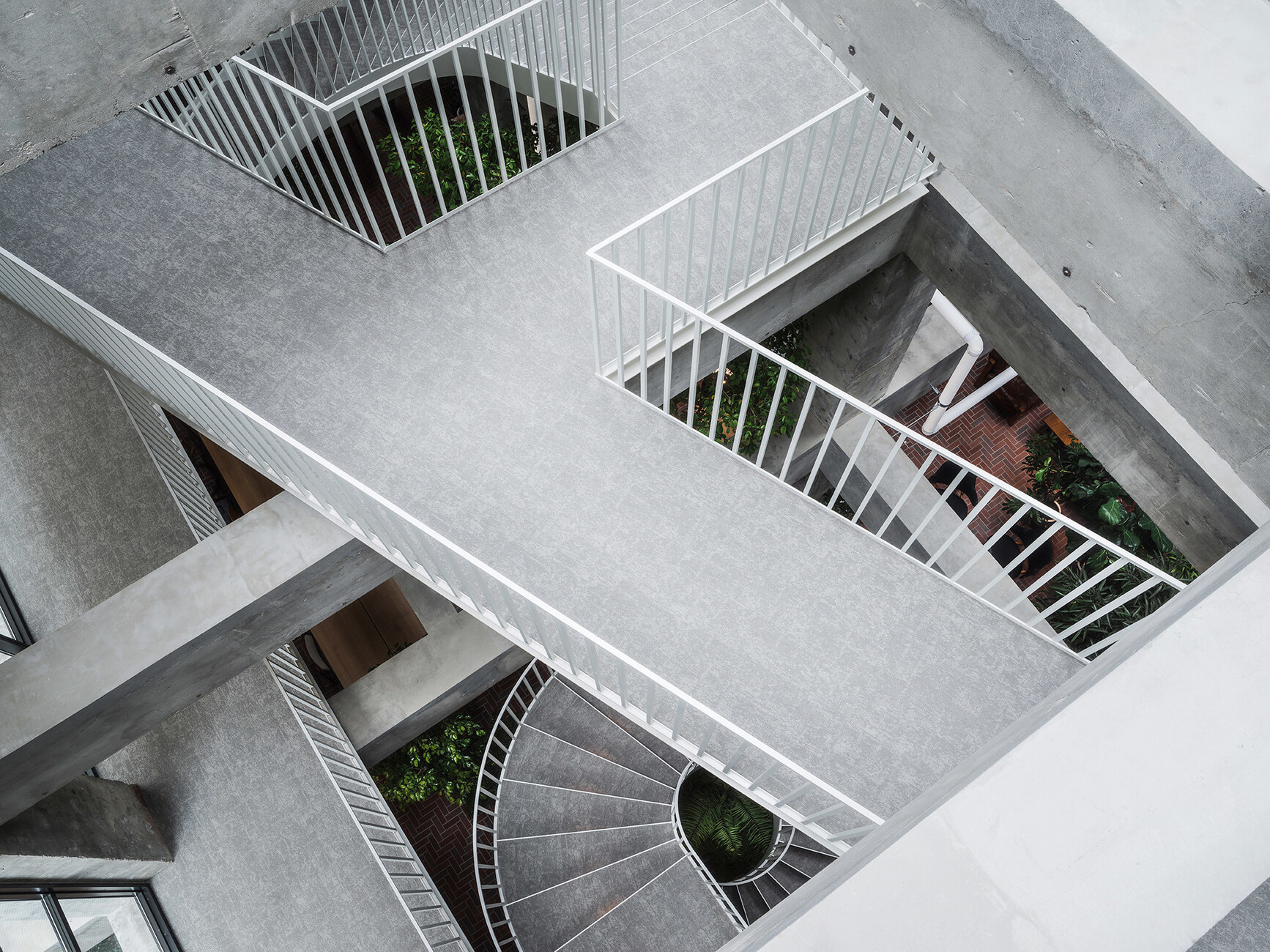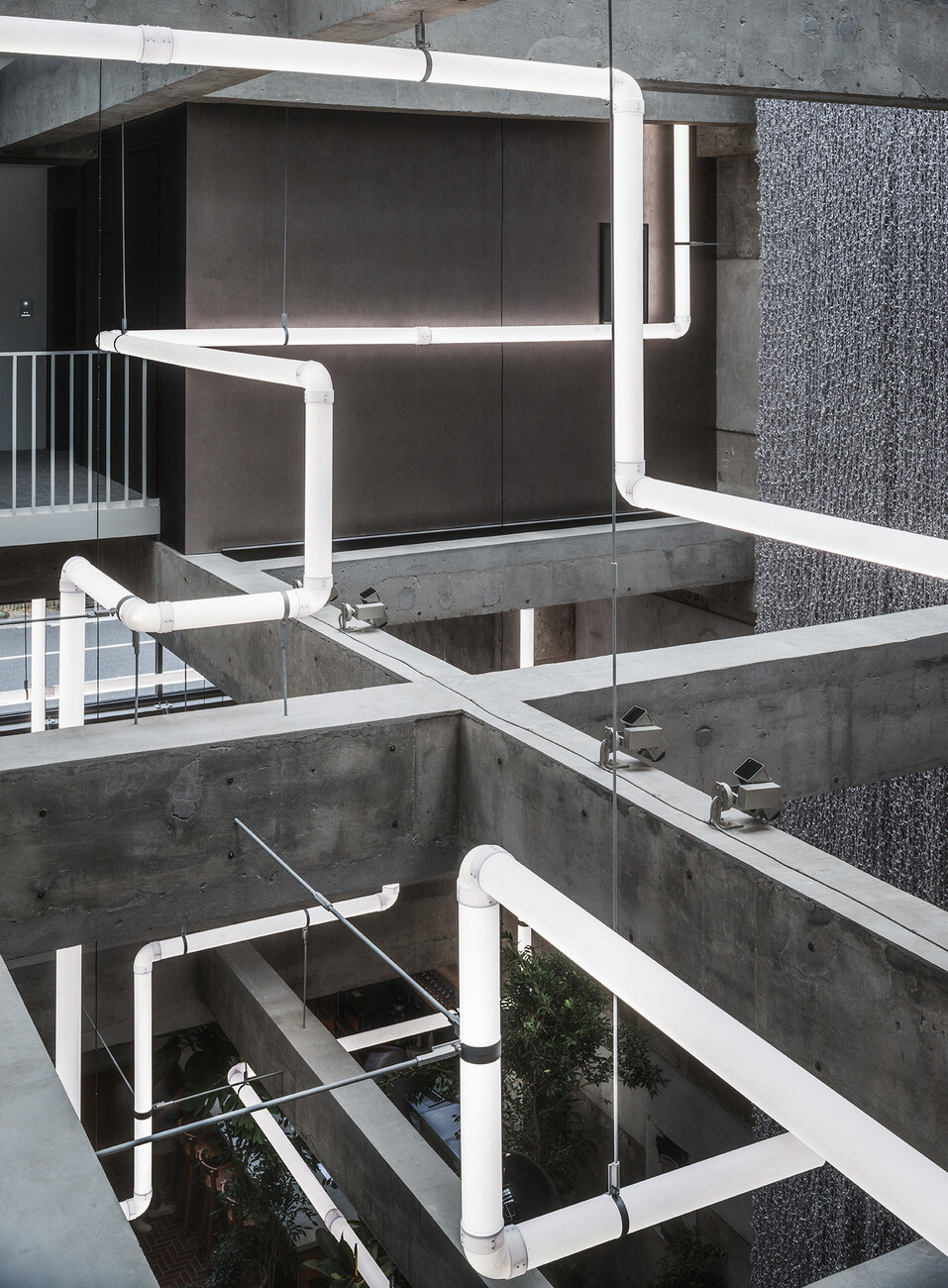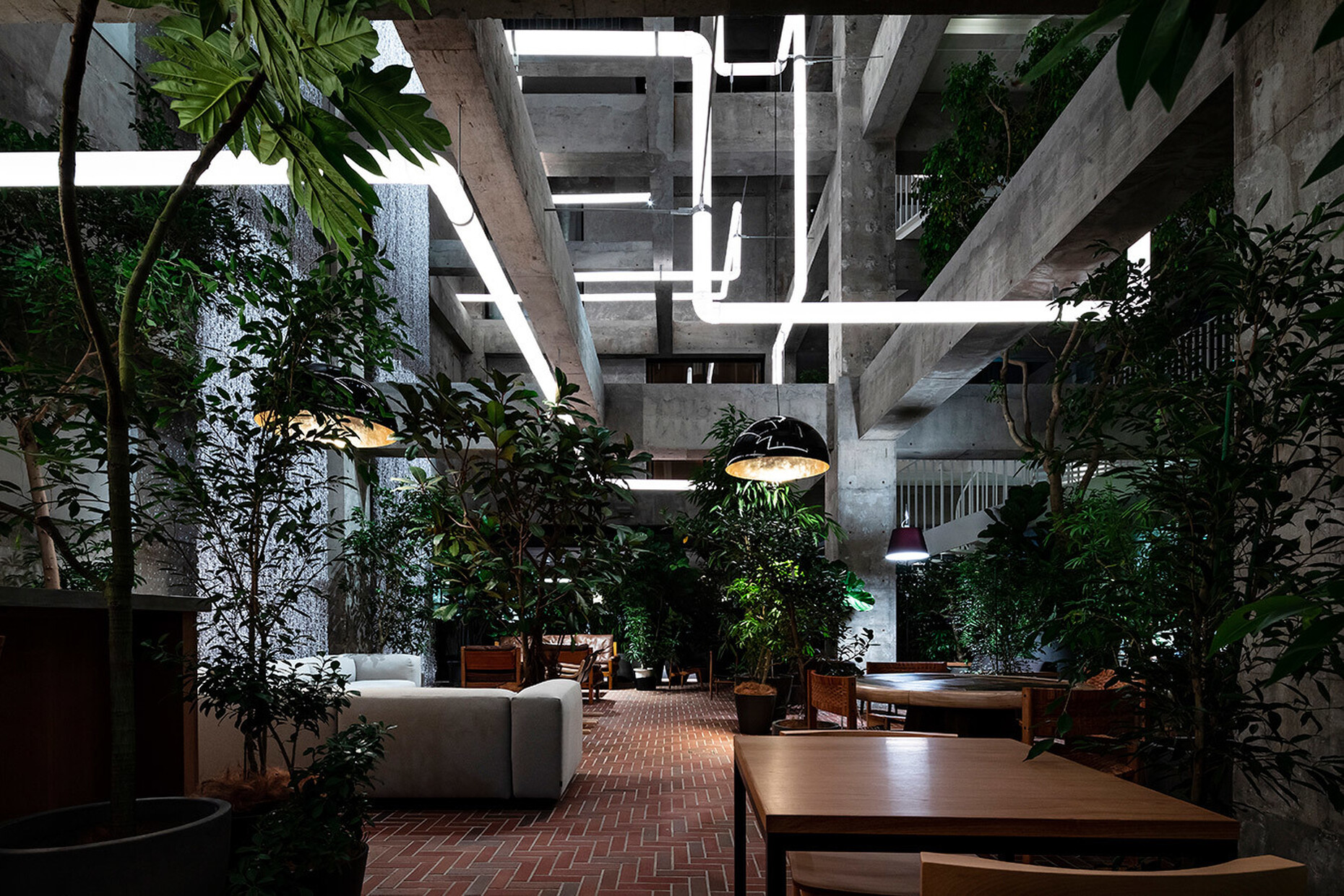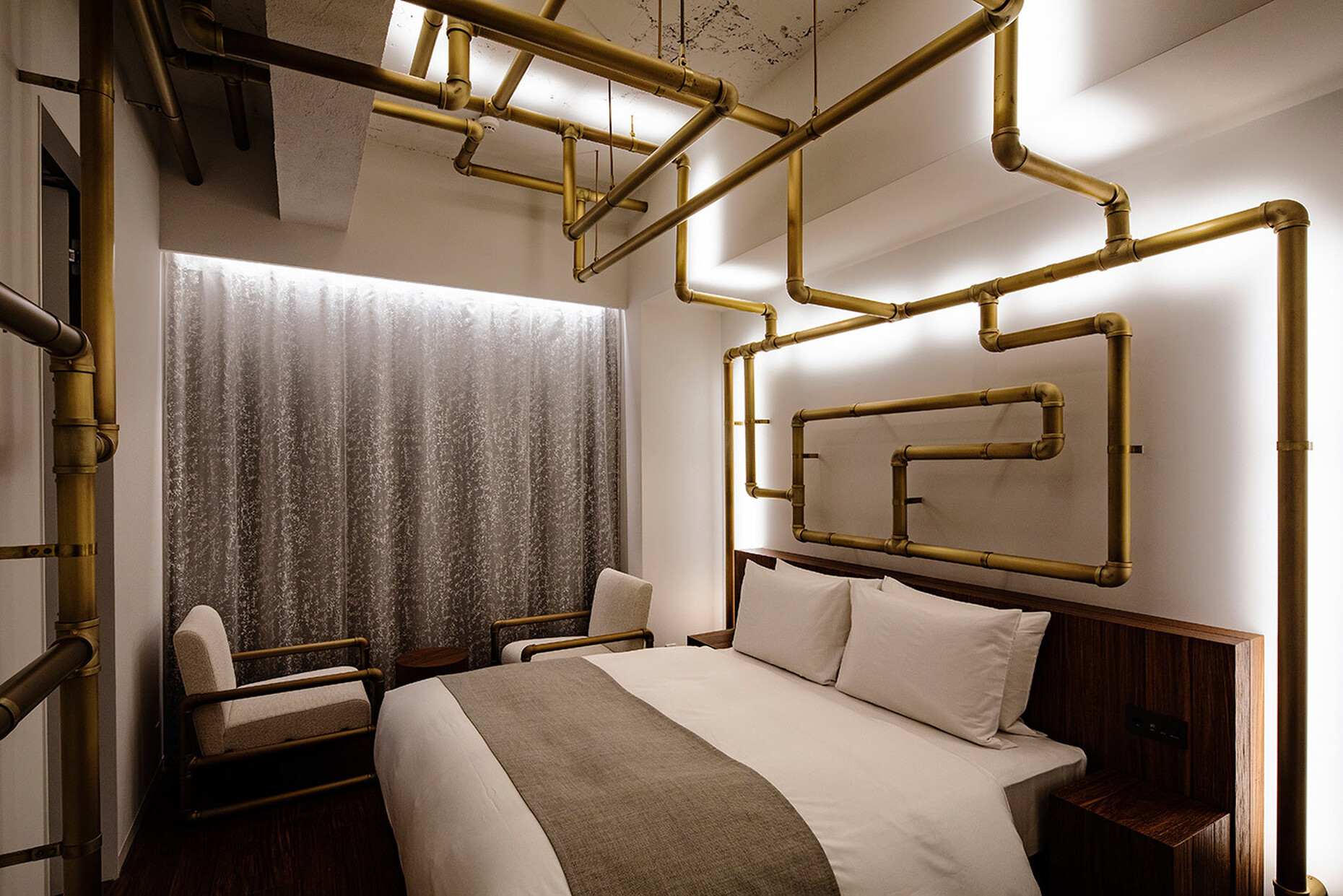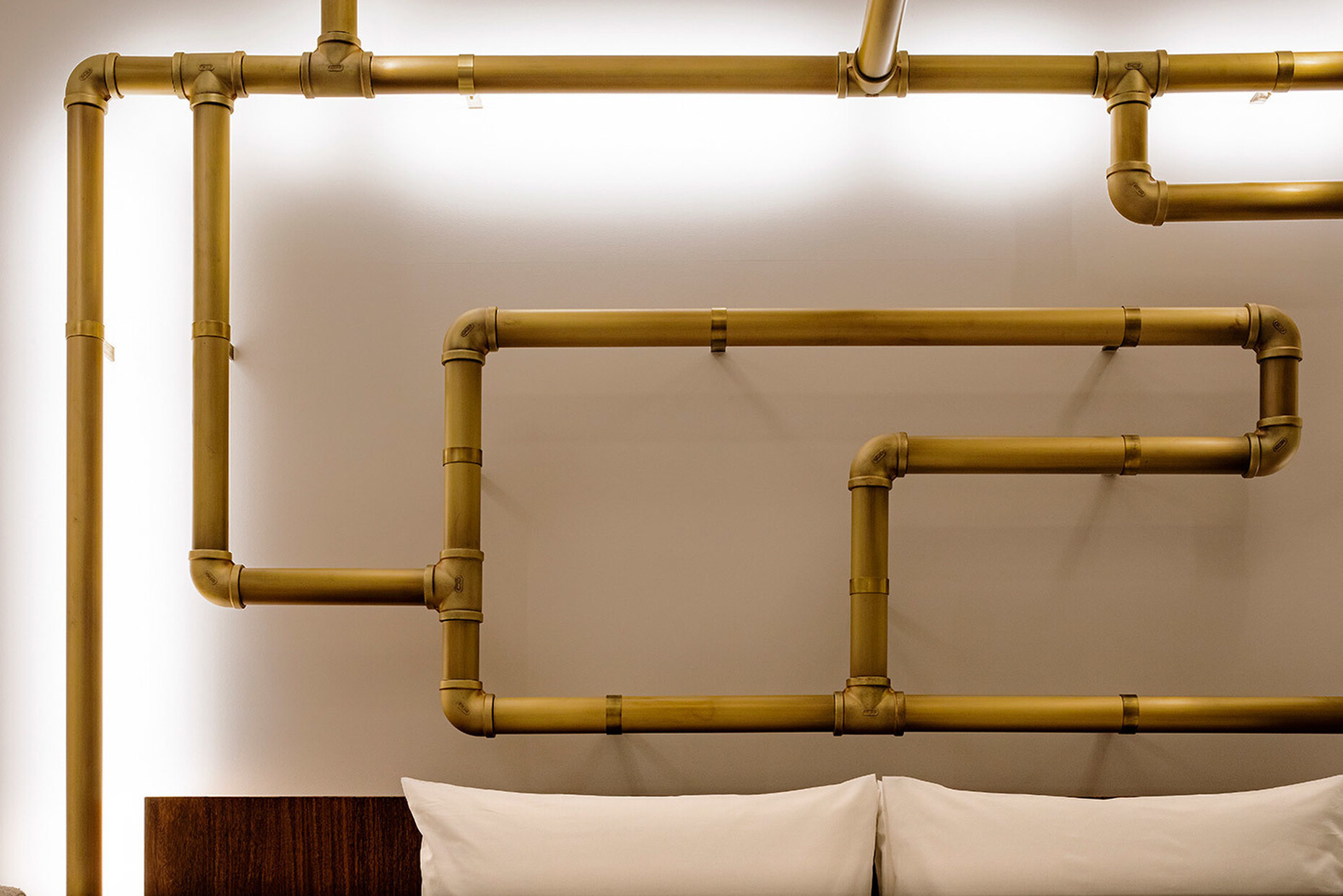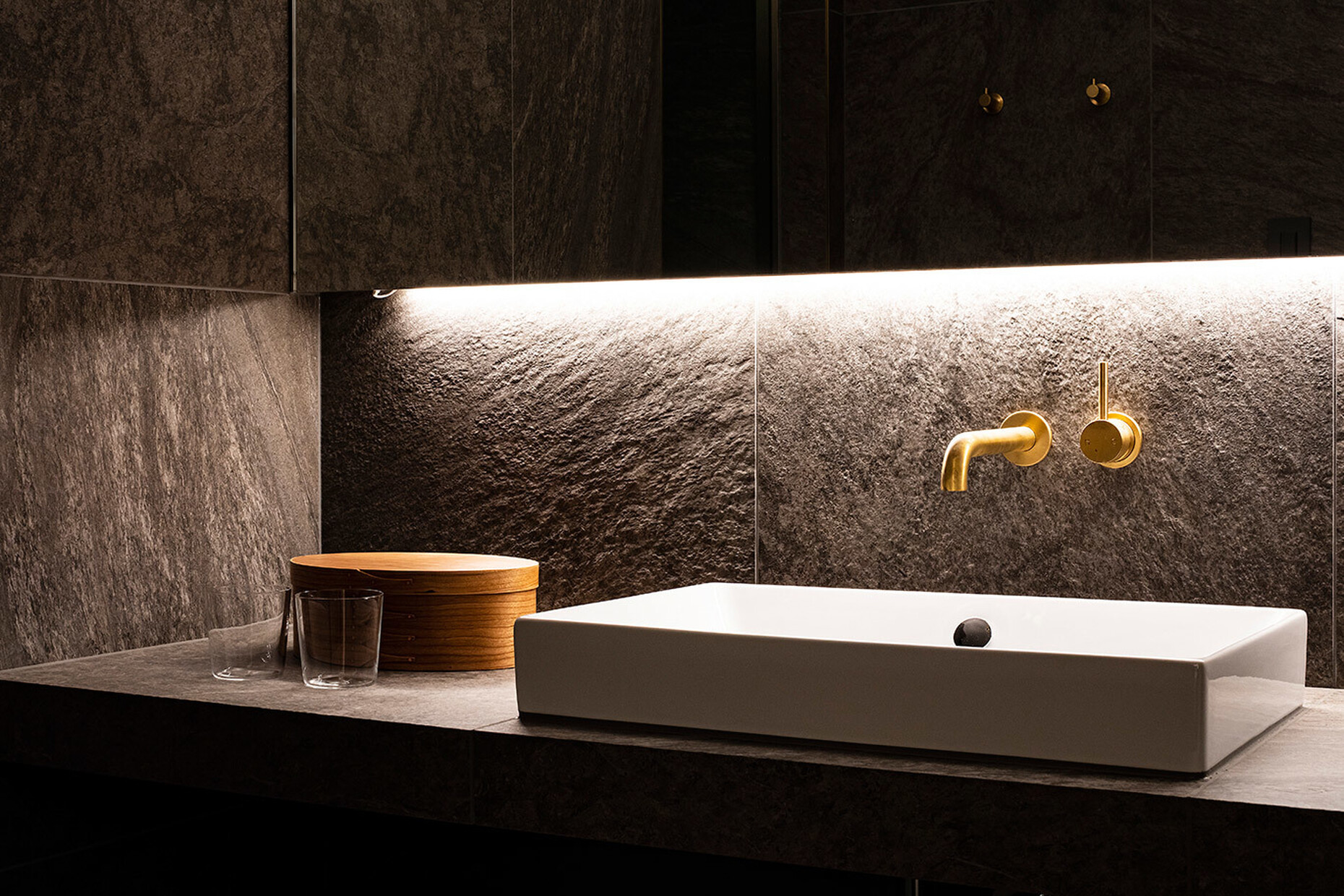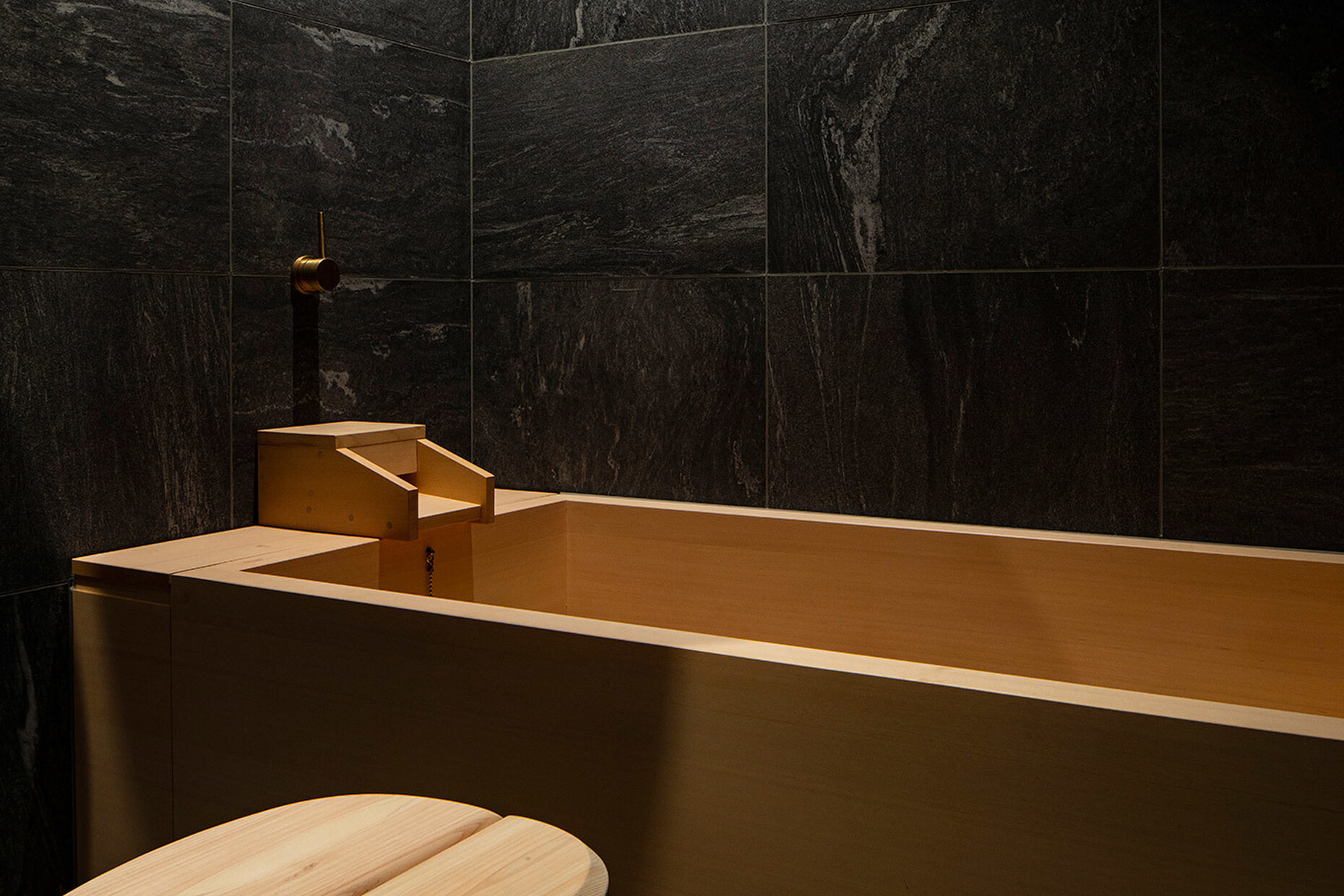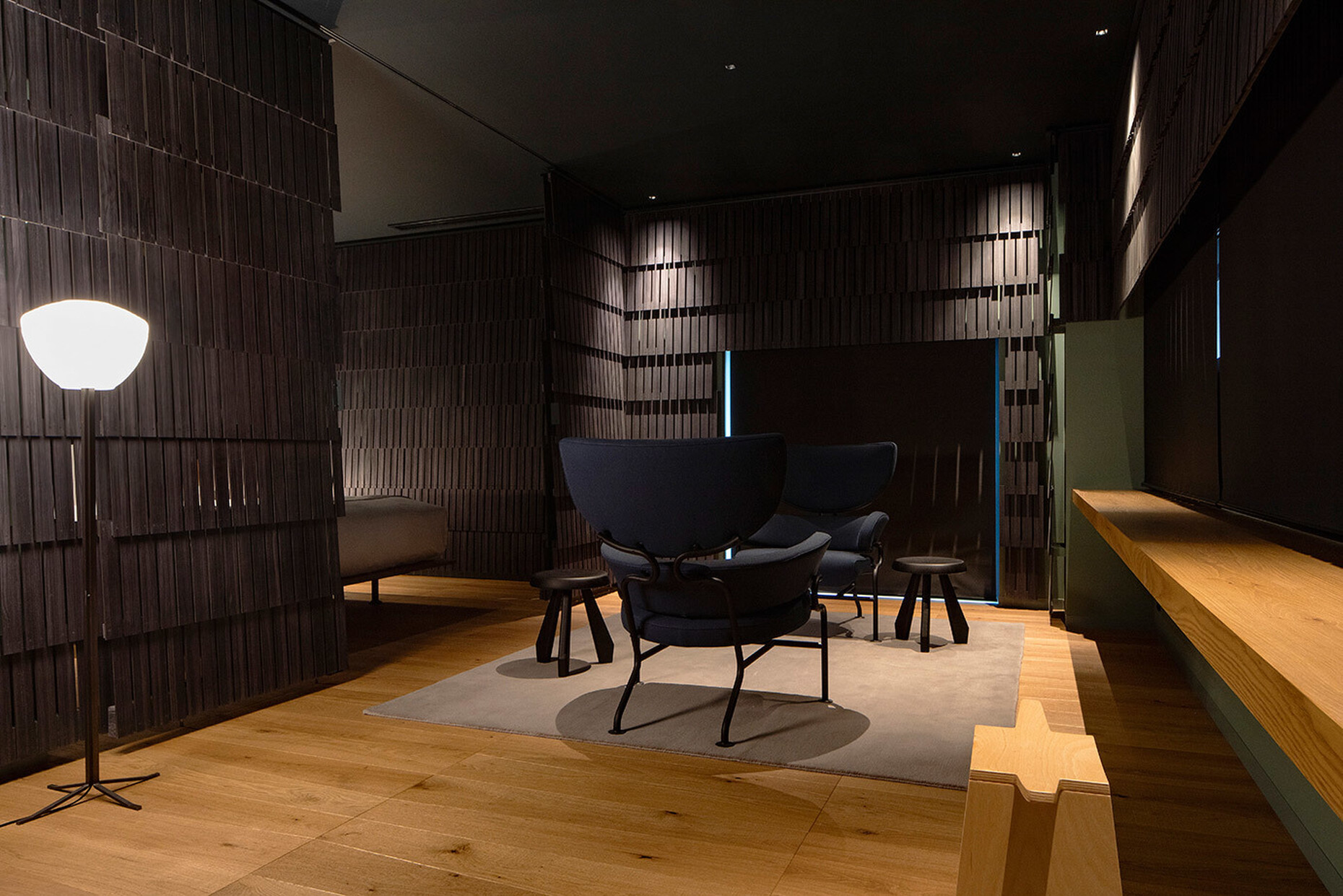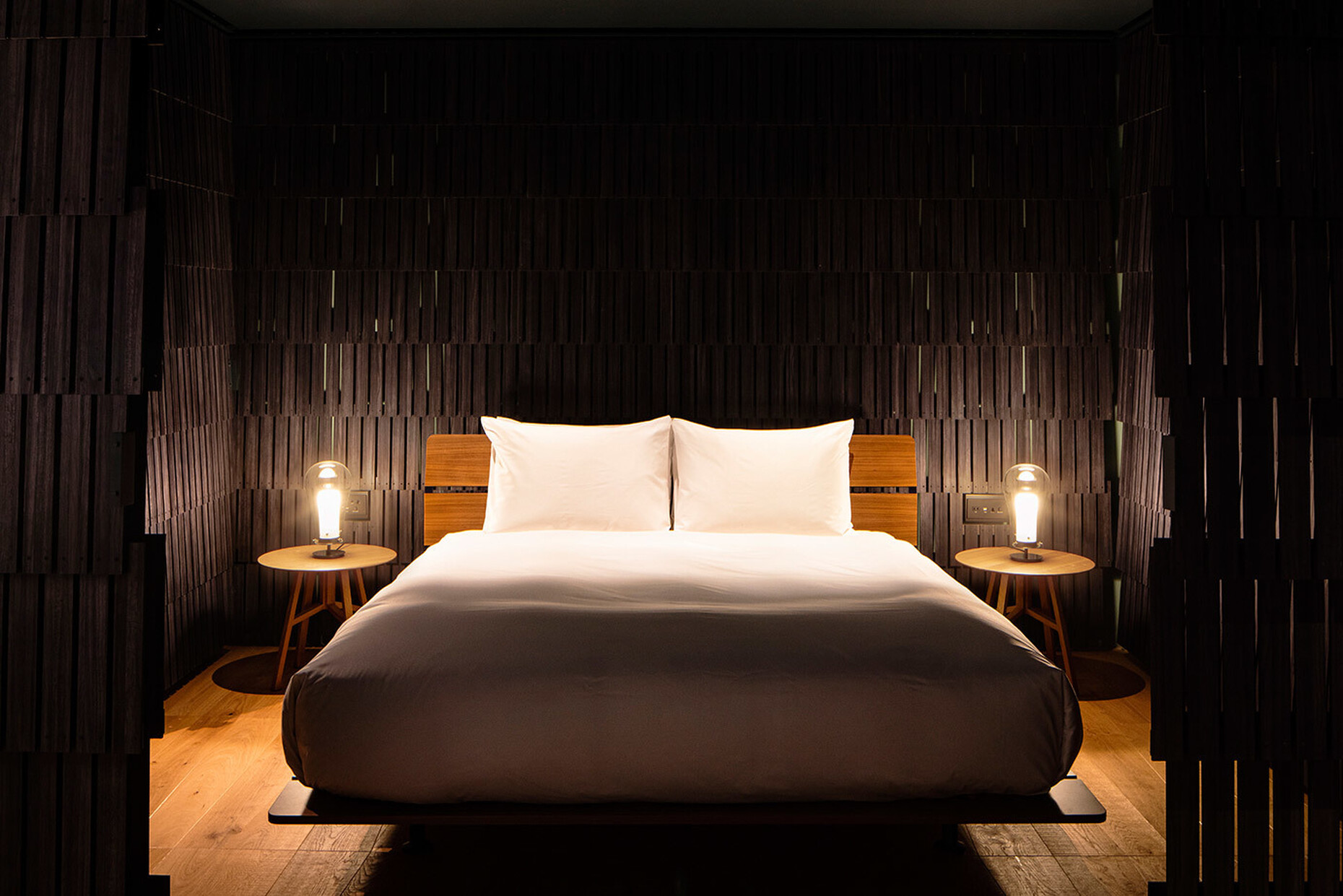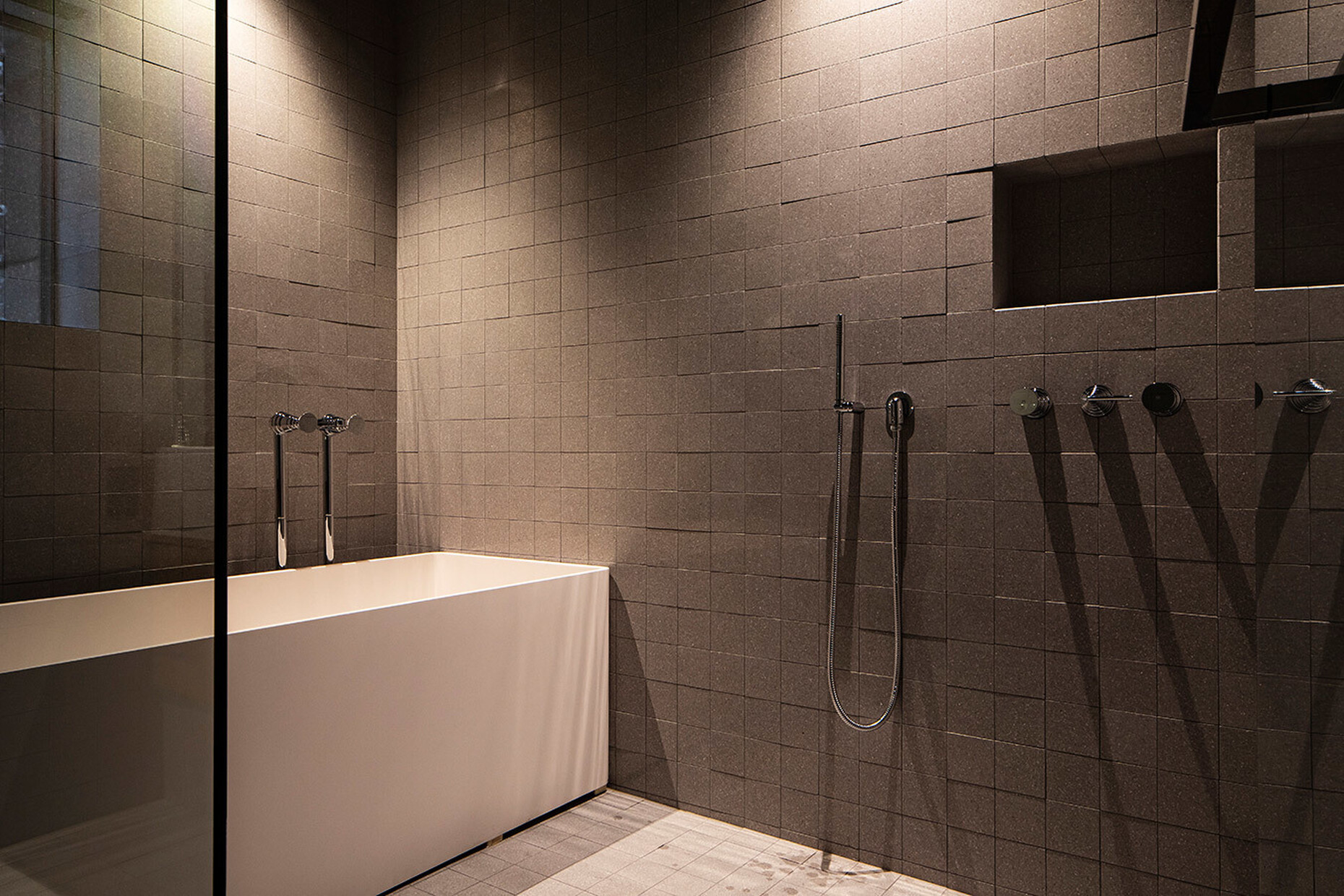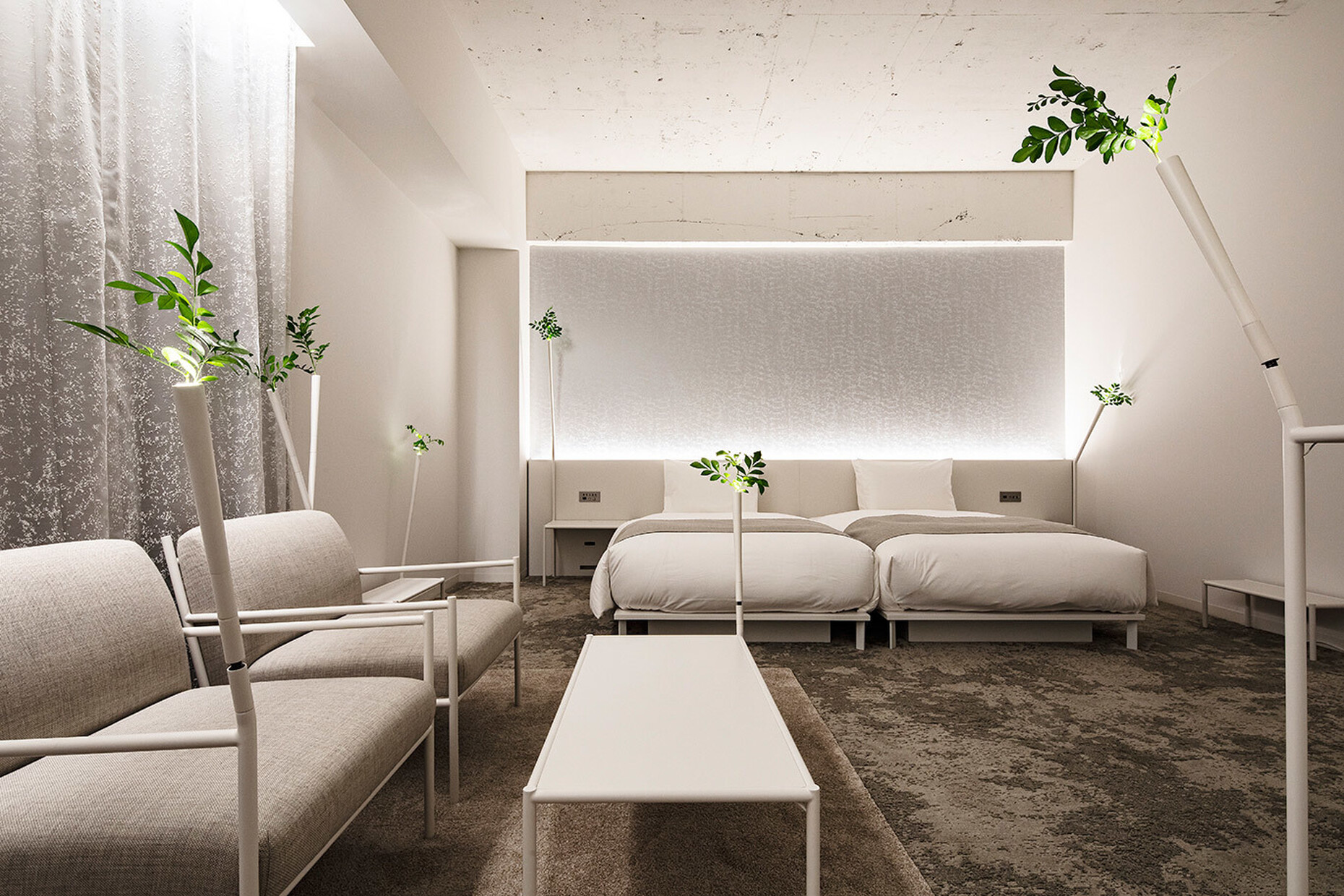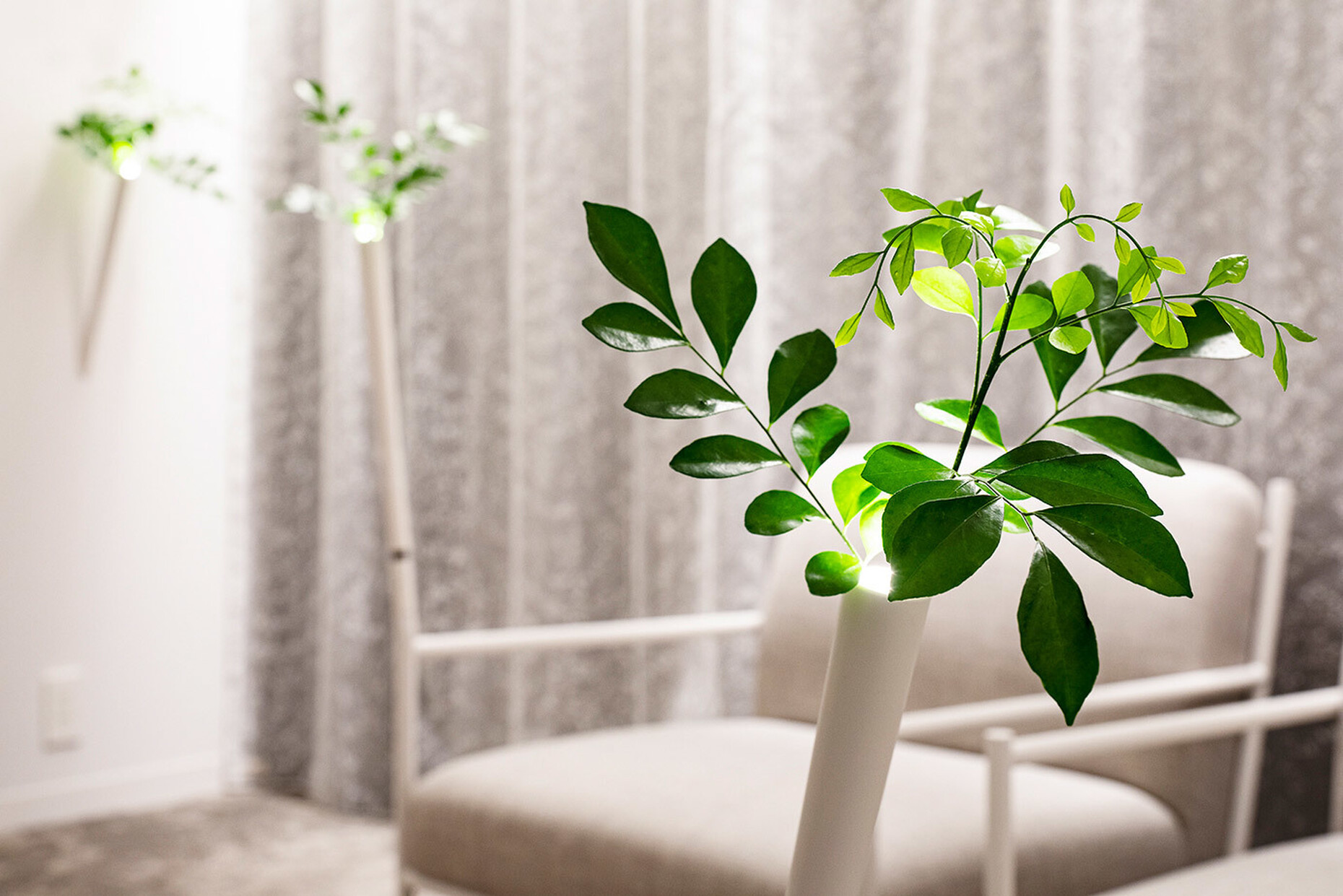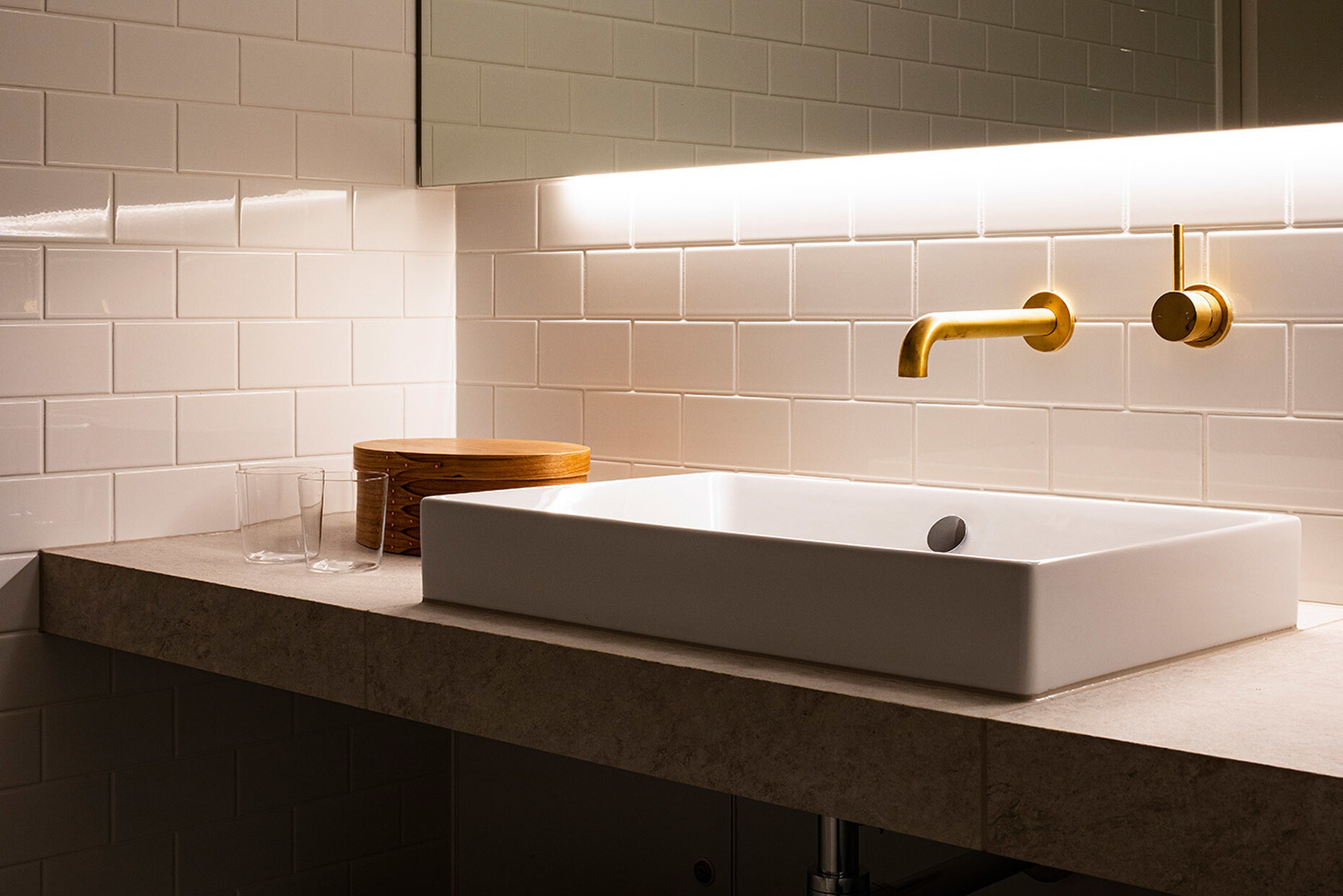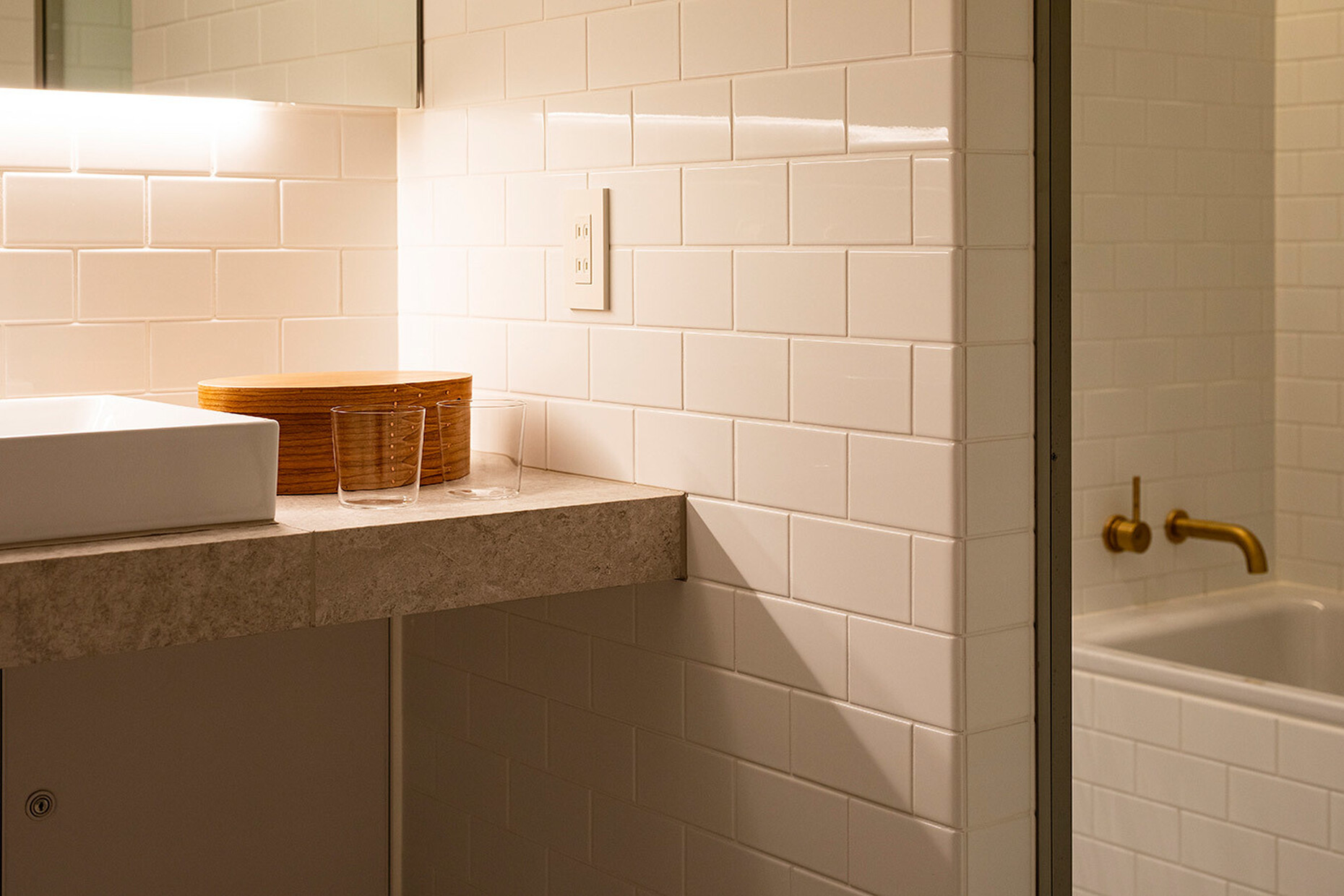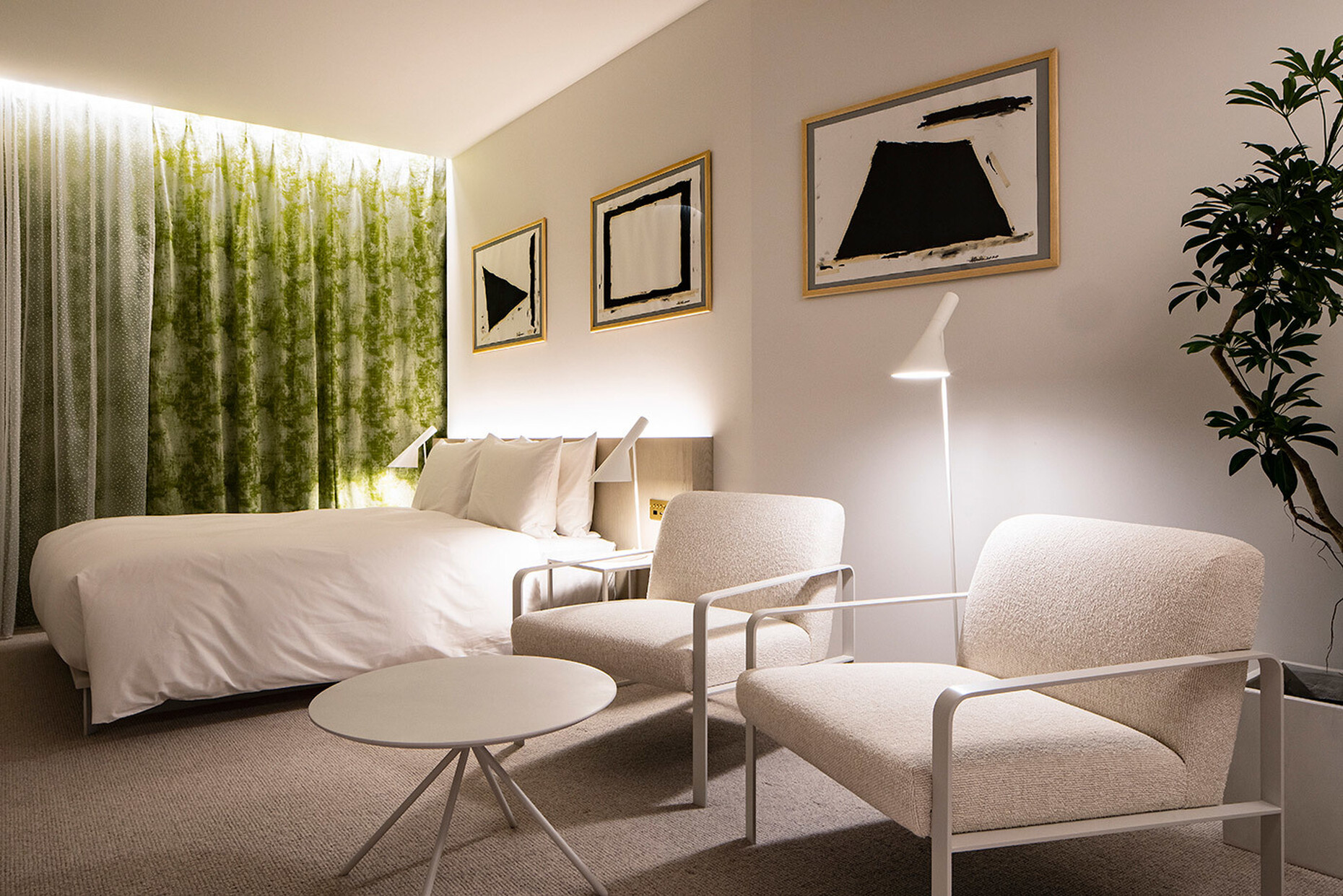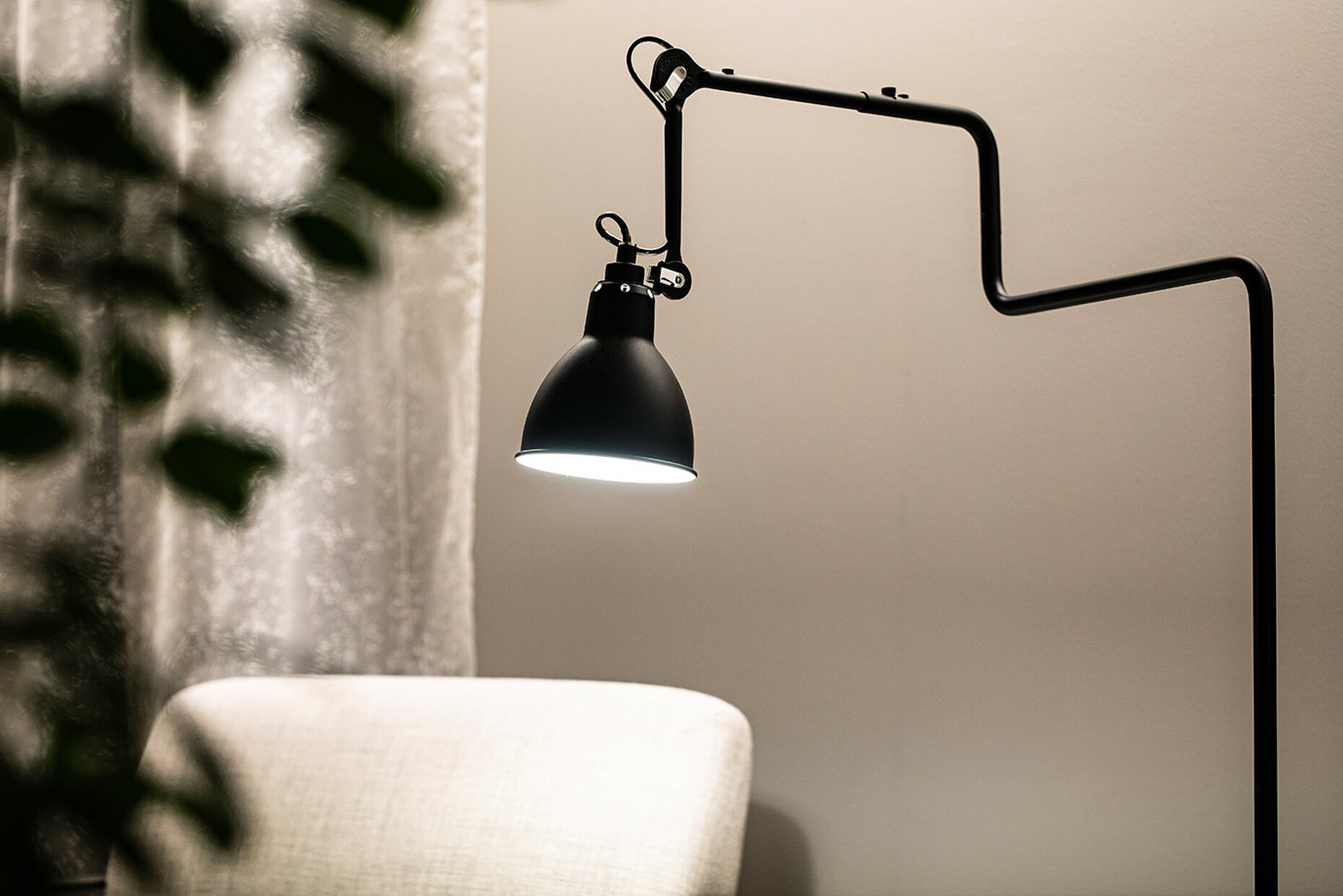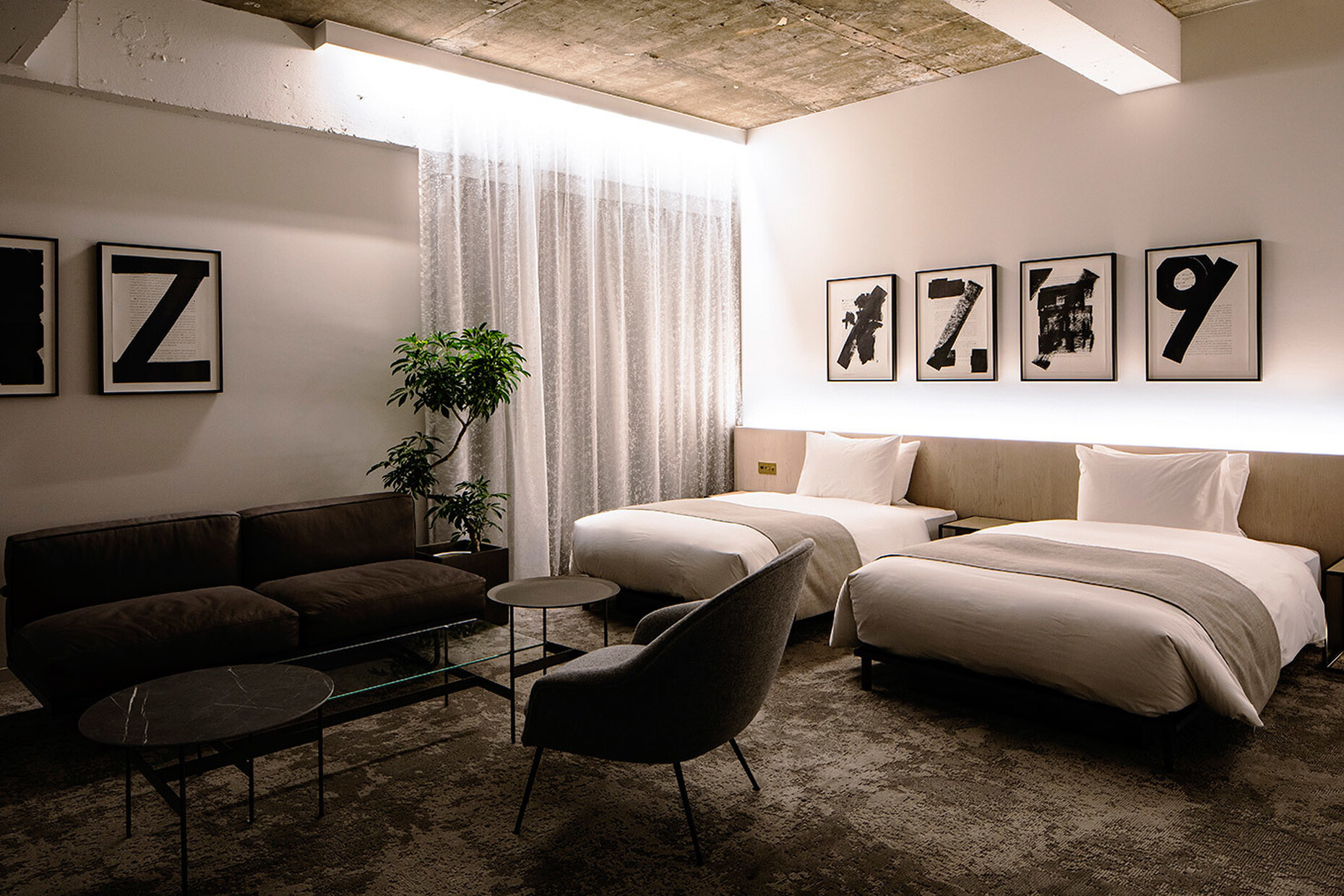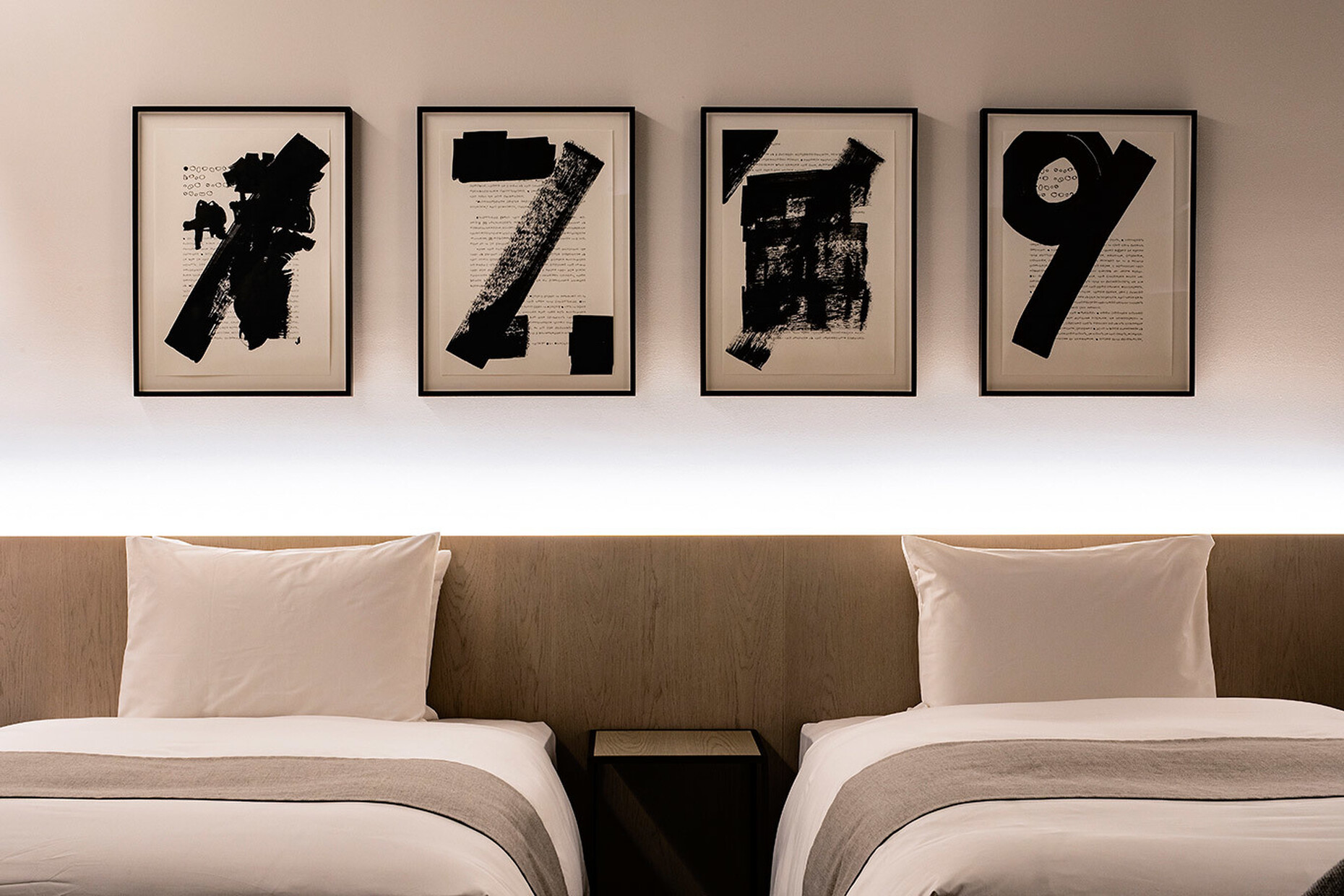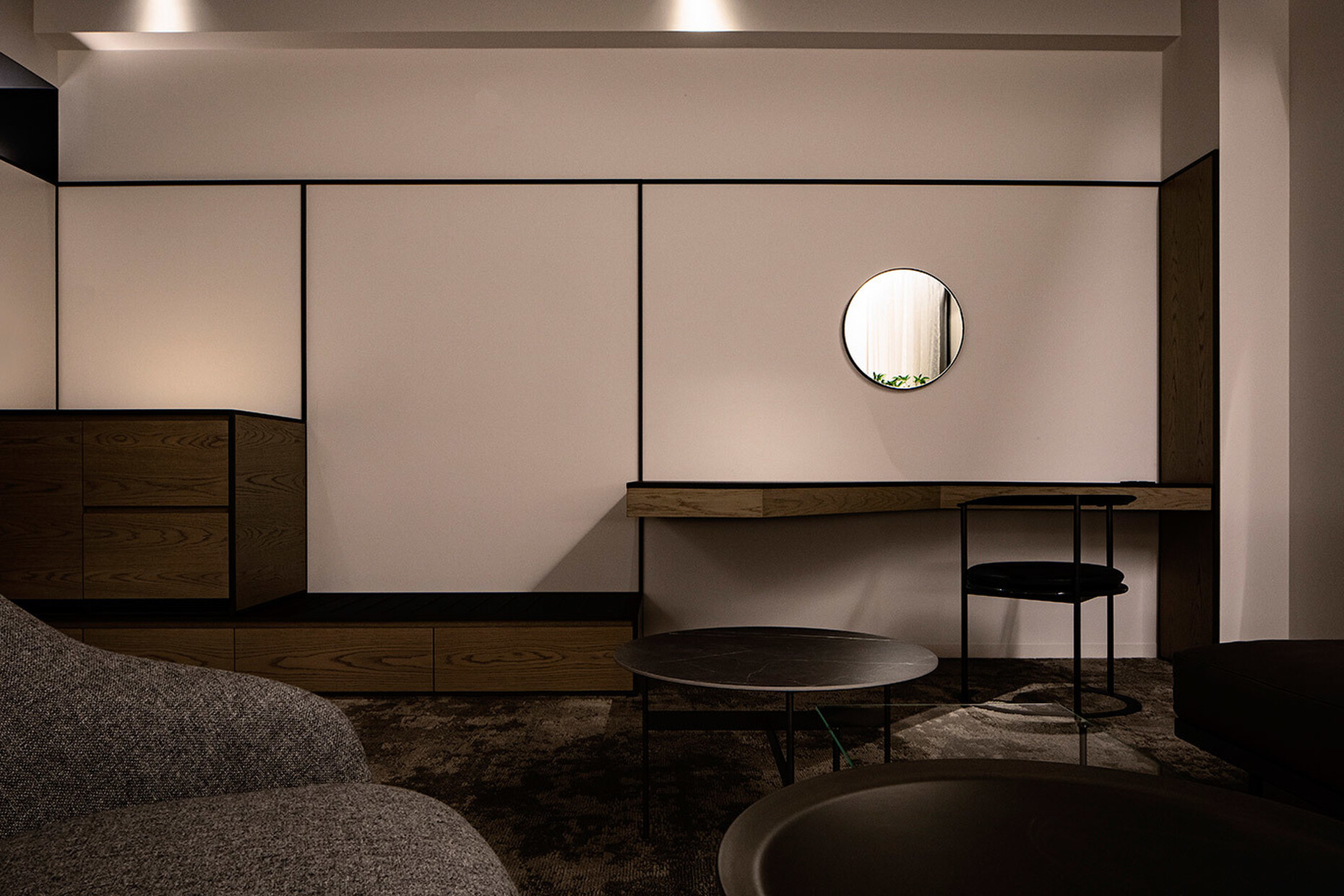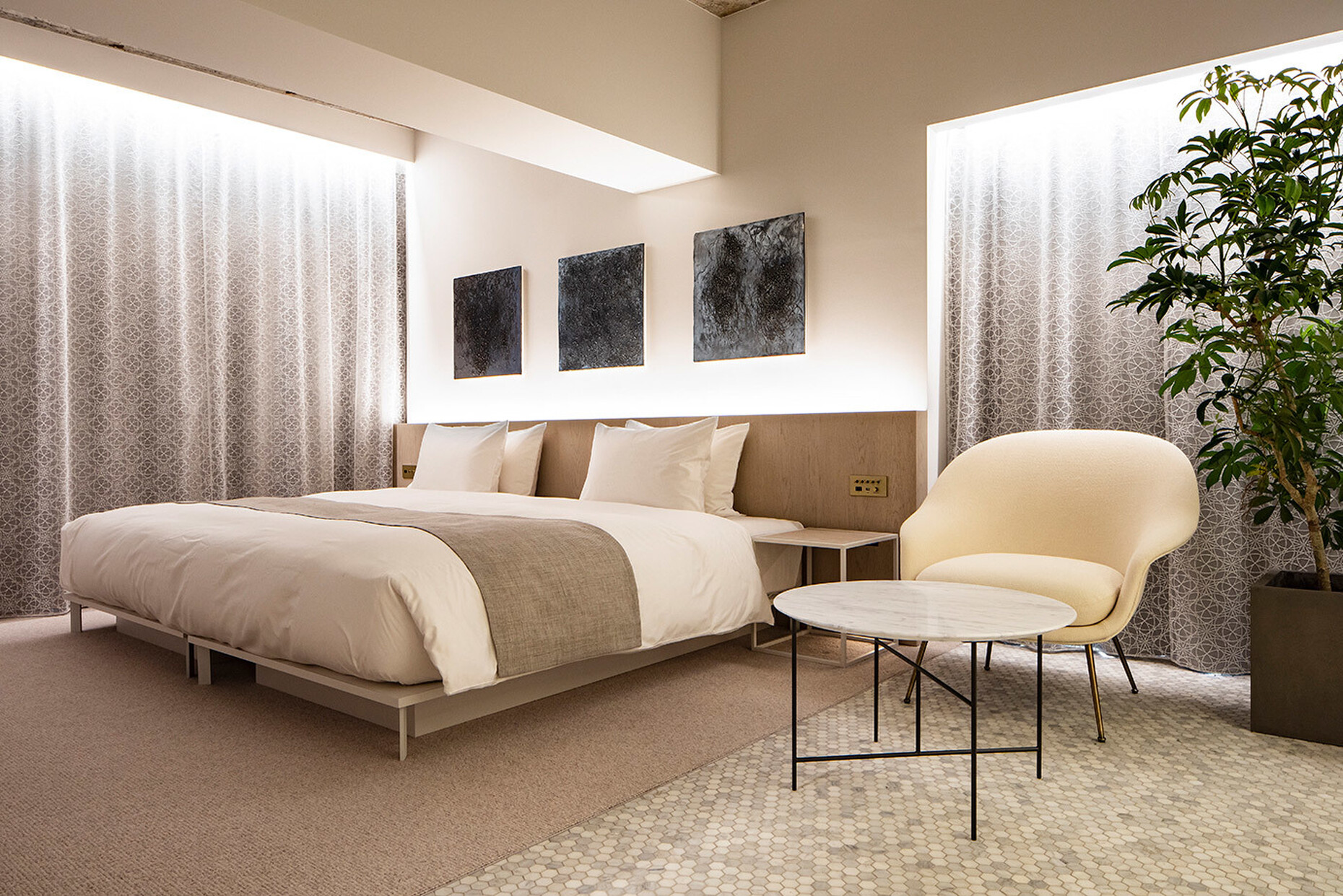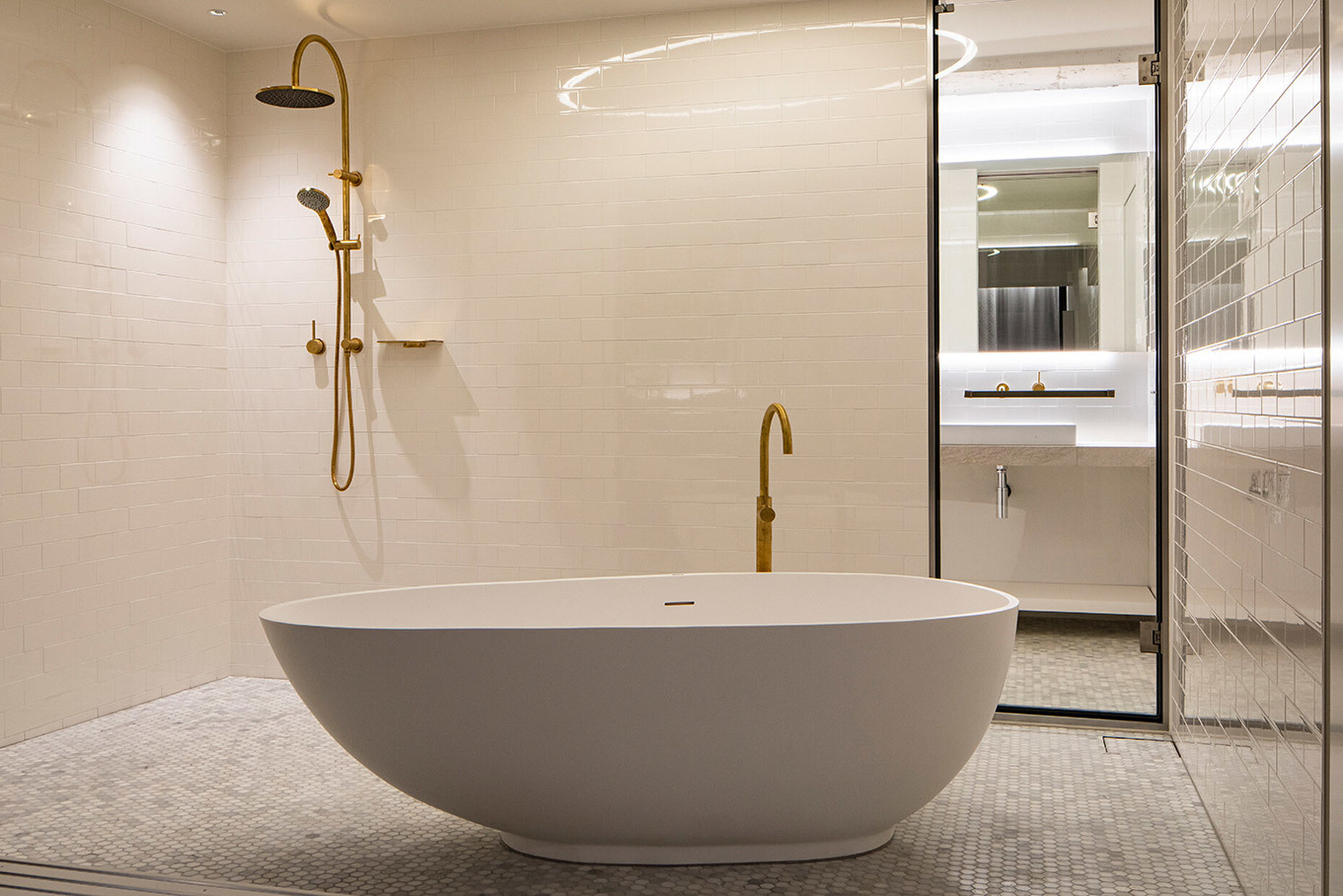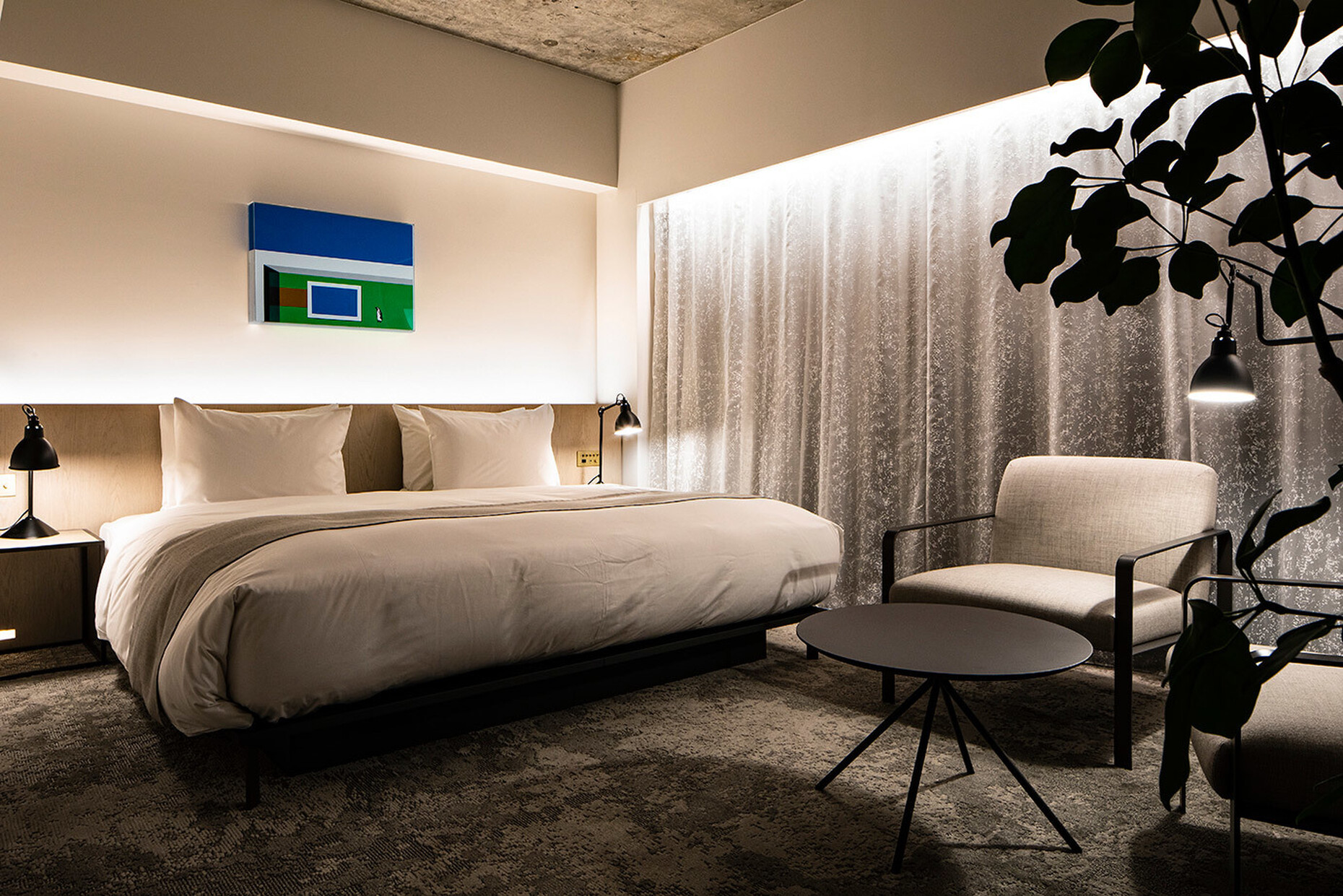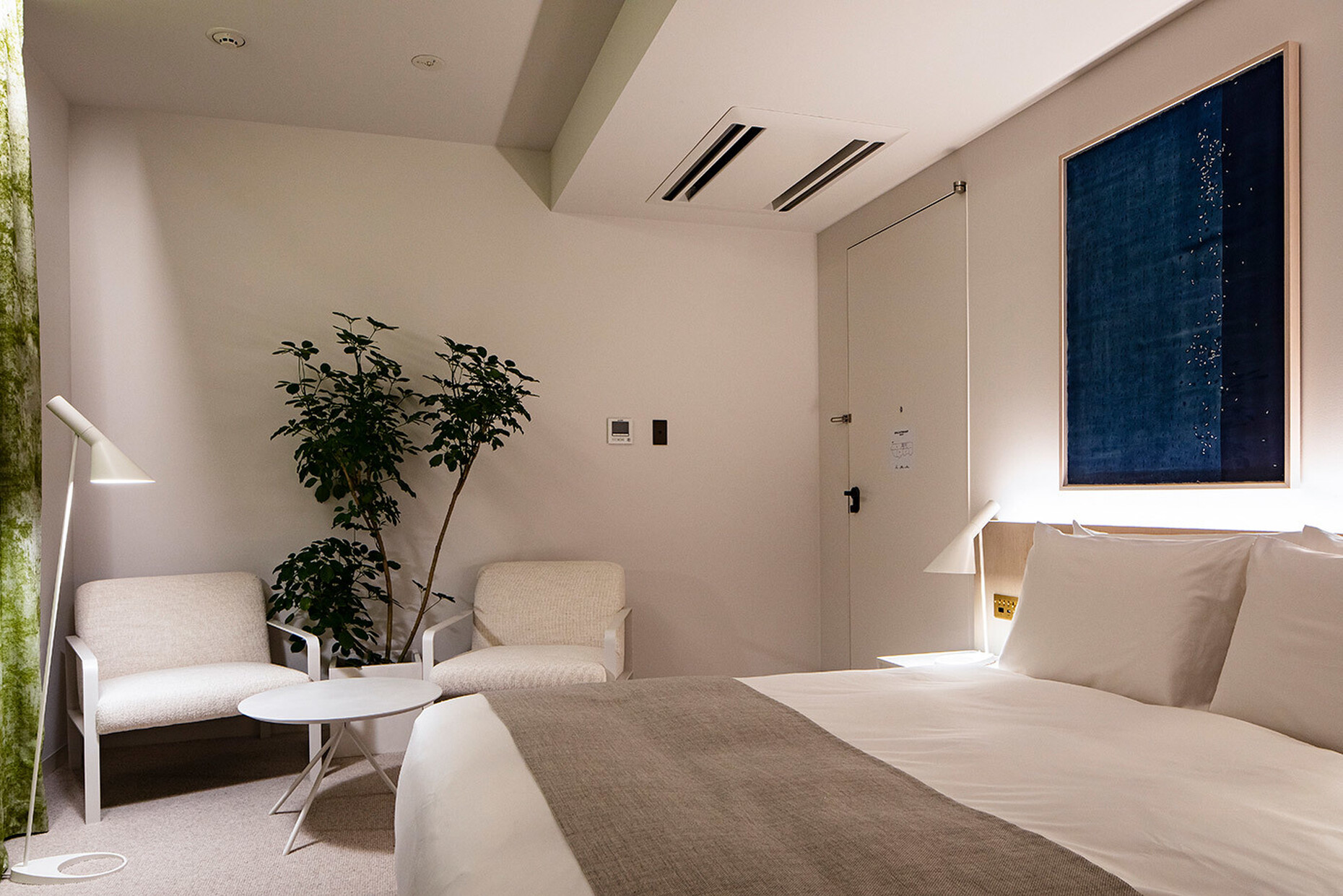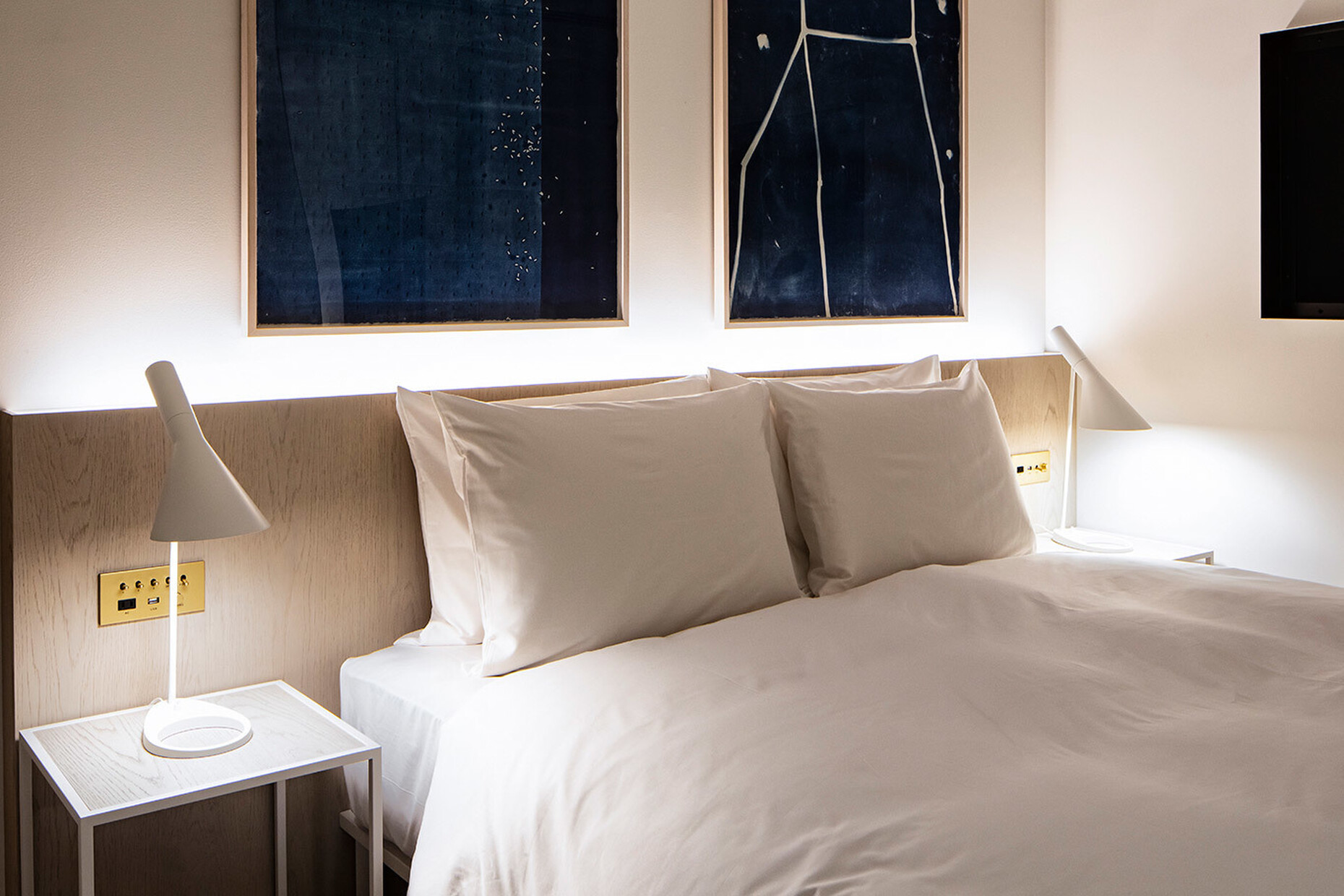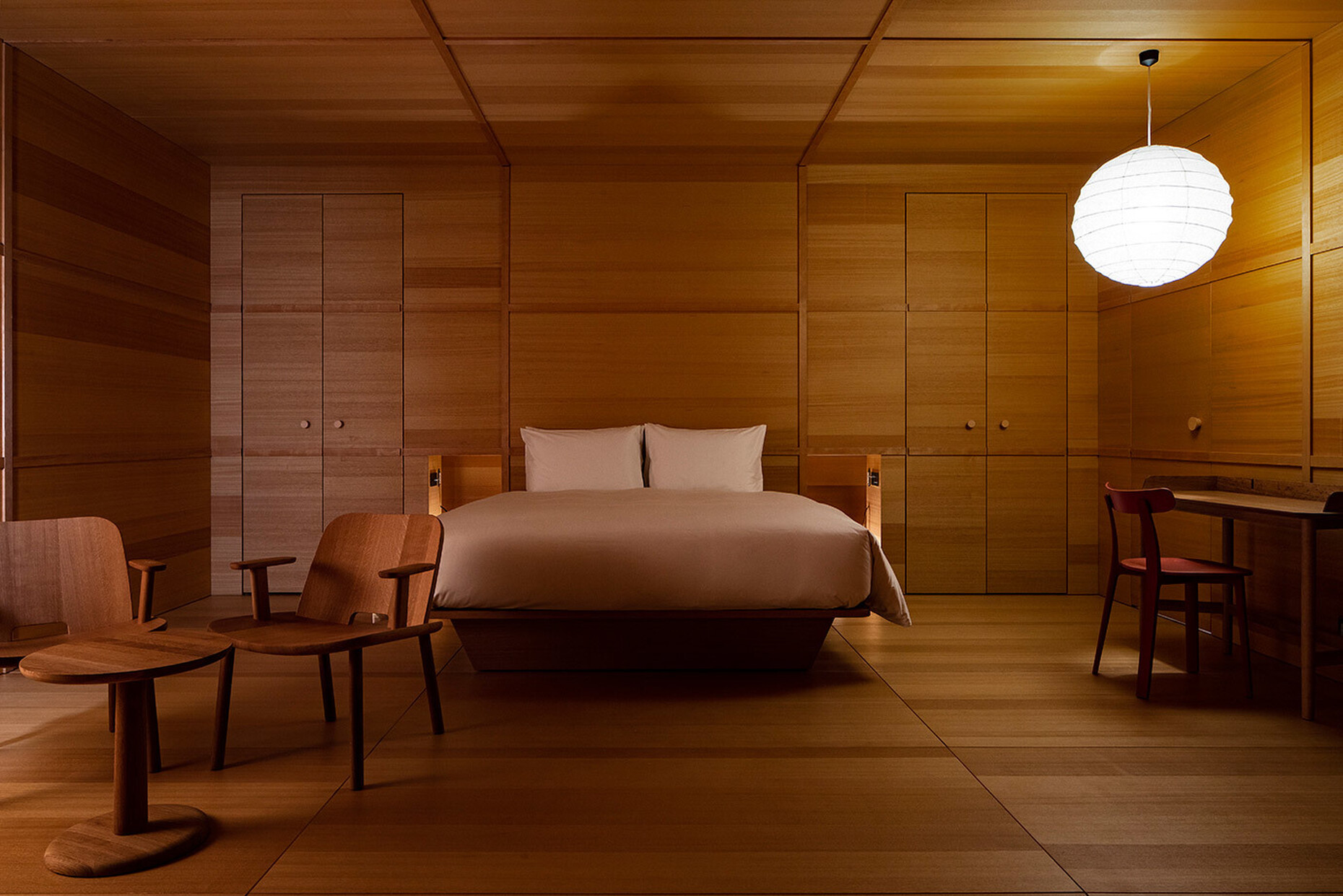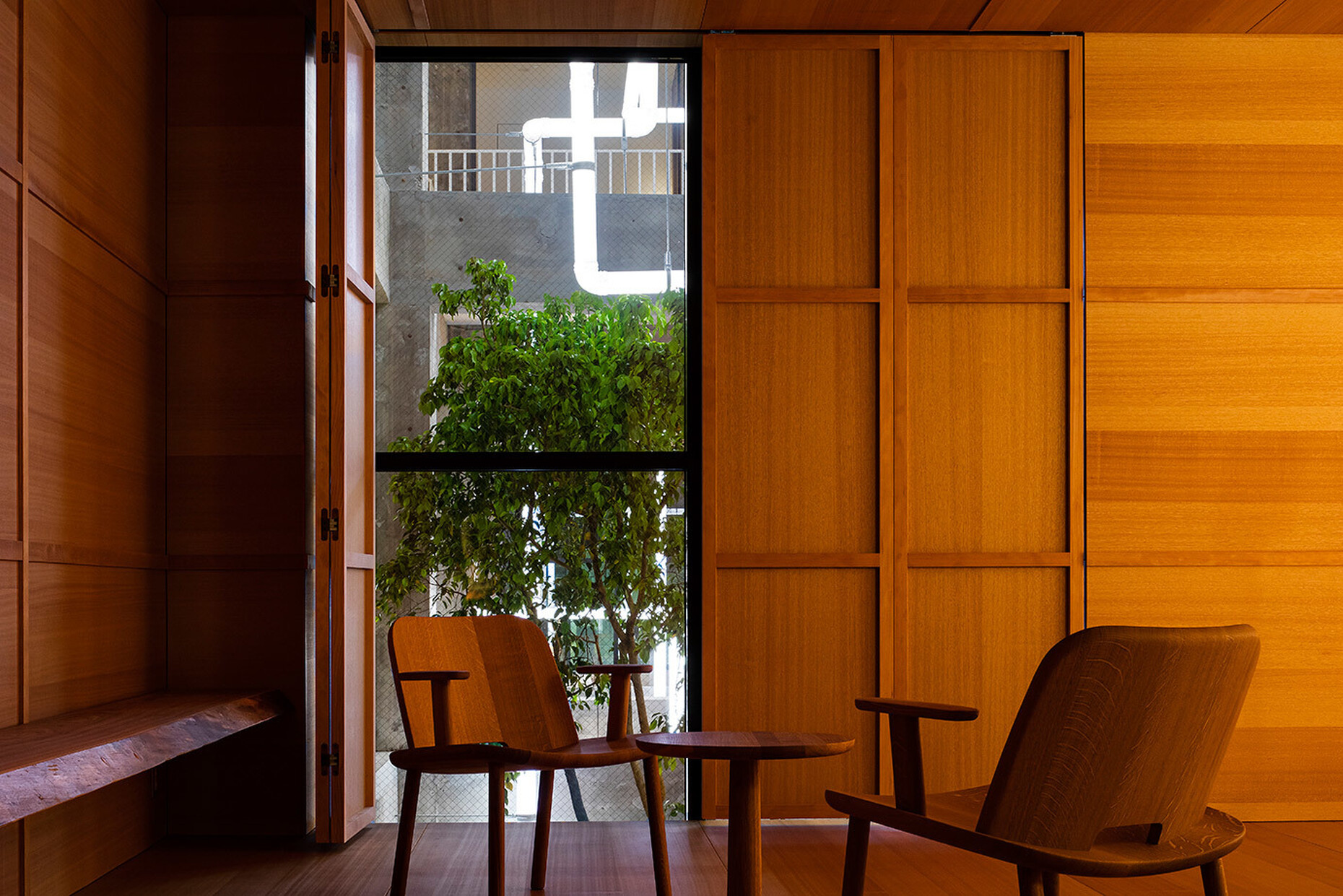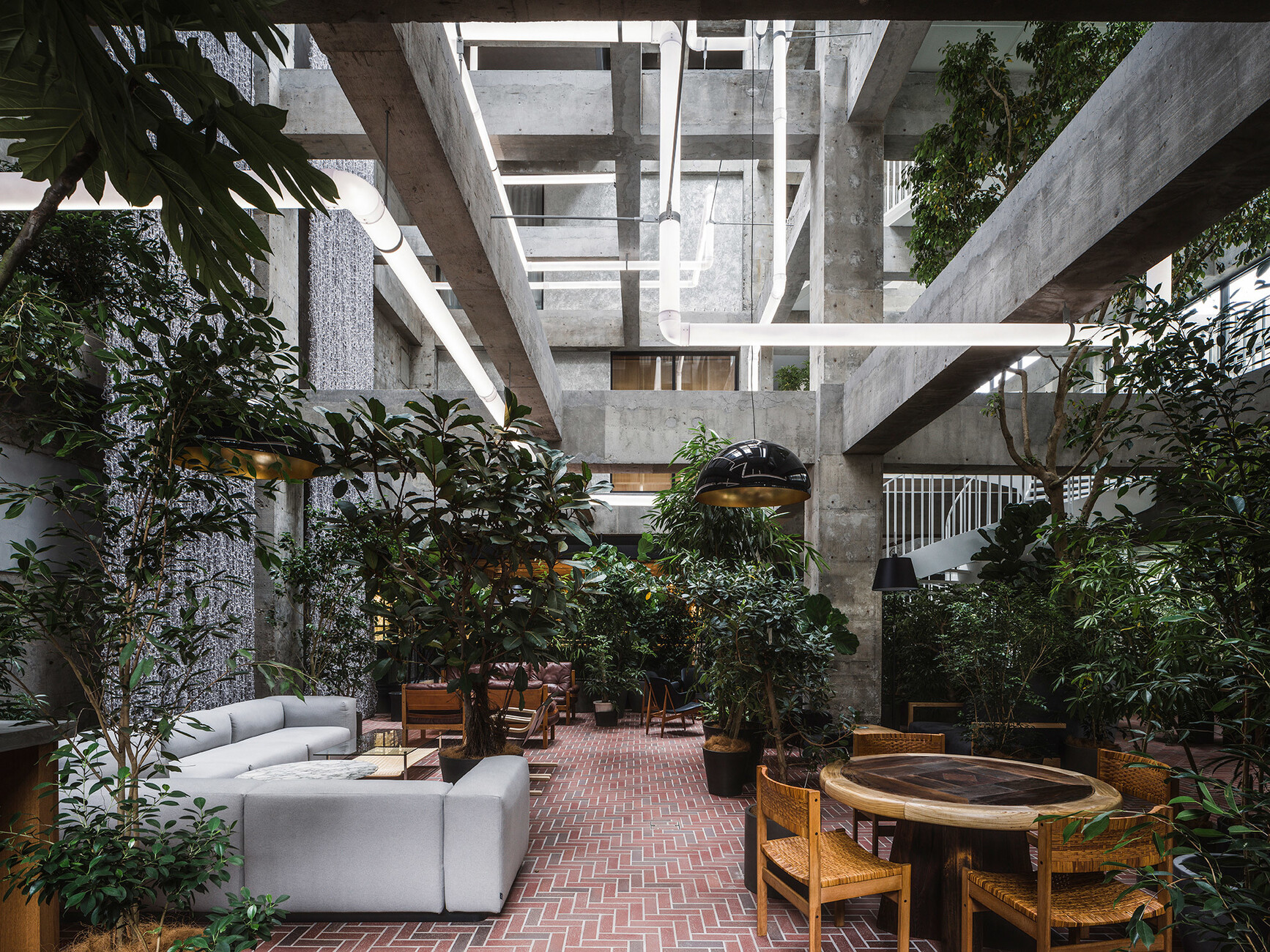HOTEL
A nest with a hill
In Maebashi, the capital of the Japanese Gunma prefecture on the Kantō plain and two hours north of Tokyo, an extravagant ensemble has just been completed, the Shiroiya Hotel by Sou Fujimoto Architects. Back in 2005 the above firm of architects with branches in Tokyo and Paris erected a small residential house here, their “T House”. Planning for the conversion of a hotel dating from the 1970s started in 2014. The plans envisaged a kind of hybrid made up of a hotel, a museum, and a public living room, namely a lounge for the entire neighborhood and for travelers from all over the world. For the owner, who comes from Maebashi himself, the project is a way of showing his solidarity with his hometown and of encouraging urban planning there. To begin with, only reconstruction work and structural alterations were planned but the situation changed when the neighboring plot of land went up for sale. An opportunity arose for Fujimoto to radically open up the insides of the existing hotel and to supplement them with a new building. Taking his inspiration from the riverbank landscape of the past in the region, he decided to model a hill and plant extensive vegetation there, with miniature white houses peeking out from the greenery. The result is an exciting combination, a sharp contrast between what is known as the “Heritage Tower” in the main building with its shared lobby in the new atrium, its restaurant plus its 17 hotel rooms and the “Green Tower”, which accommodates another eight rooms and the sauna huts on its artificial hill. For Sou Fujimoto architecture is abotlandscape and forests, a cavern and a nest.
Unlike the situation with Kisho Kurokawa’s “Nakagin Capsule Tower”, in which one residential pod is just like the next one, in the Shiroiya Hotel all 25 rooms are different in size and design. The existing building, which once had 75 hotel rooms on offer, was pretty much gutted and reduced to 17 units. The architects and designers invited to take part were given carte blanche for four hotel rooms: Michele de Lucchi, Jasper Morrison, Leandro Erlich, and Sou Fujimoto were each commissioned to design one room completely as they wanted it. The result is four one-off examples of interior design. Accordingly, British designer Jasper Morrison transformed his room into a wooden crate from floor to ceiling and all the surfaces are clad in wooden paneling. When the guests close the shutters on the windows, they get the feeling that they are standing in a giant export crate for transporting works of art. According to Morrison, he wants the traveler himself to become the room’s “precious contents”. His Italian colleague Michele de Lucchi has also chosen wood as his basic material. His “2725 Elements Room” manifests just as many pieces of dark clapboard, the overall impression of which manages to bridge the gap between sculpture and interior design. For his part, Argentine concept artist Leandro Erlich works with a detailed structure consisting of intertwined metal pipes. Erlich describes his installation as a “dynamic excavation that highlights the power of empty space and air”. With his reference to Italo Calvino’s invisible cities, his aim is to render visible those elements of a building which otherwise remains unseen. His “Lighting Pipes”, illuminated pipe structures, have also been used to adorn the atrium in the lobby.
In addition to the international designers, for the other 21 rooms a number of local artists were commissioned to produce smaller works, with a different artist in each case, thus transforming the entire building into a living art exhibition. Moreover, the façade of the existing four-story building is decorated with a stenciled logotype by Lawrence Weiner. At the opening of the Shiroiya Hotel in Maebashi on 12 December 2020, many of the architects, designers and artists involved could not be present in person – since the end of March the pandemic has meant that entry into Japan is no longer possible. At the same time, the hotel on the hill links the pre-Corona days of 2014 with a future in which many things will be similar and yet everything somehow different. Sou Fujimoto’s constant concern is “to design a place which will give people many opportunities to come together”. We will soon be needing such places once again.
Contact Hotel
SHIROIYA Hotel
2-2-15 Honmachi, Maebashi, Gunma
371-0023 Japan
Phone: +81-27-231-4618
